How To Become An Education Writer In A Short Time
- February 9, 2024
- Freelancing Tips

Table of Contents Hide
Who is an education writer, types of education writers, what are the roles of an educational writer, how much does an education writer make, how do i become an education writer, how to find education writing jobs, 1. gain writing experience, 3. take writing classes, 4. consider an apprenticeship, 5. look for work, faqs on how to become an education writer, recommendations.
An education writer is a newspaper reporter and freelance writer who focuses on topics in education fields. Education writers majorly cover the education system at all levels – from preschool to postgraduate.
A writer building a career around education writing works on preparing tutorial plans, textbooks, pamphlets, ebooks, and school articles.
As a specialized writer in this field, you must be able to ascertain the information appropriate to the learners’ knowledge base and convey that information in easy-to-understand language.
Aside from that, there are other qualifications and skills needed to perfect or become an expert in this field of writing. To that end, this article will walk you through the nicest pathway to becoming an education writer in a short time.
Education writers are newspaper reporters and freelance writers who specialize in educational subjects. Education writers should provide coverage of the educational system at all stages, from preschool to postgraduate.
They report on the most recent educational developments and concerns affecting education stakeholders such as students, teachers, administrators, and parents.
In certain cases, they can conduct interviews, conduct investigations, and make observations to gather, evaluate, and report information about the educational system.
According to Study.com, An education writer enjoys a career developing lesson plans, producing articles and textbooks for students of all ages, and preparing materials for online informational sites, including e-books and pamphlets.
As an education writer, there are different types of educational writing you can specialize in. The three major types includes:
- Education Reporters
- Communication Officers
- Curriculum Specialists
Curriculum Specialists focus on developing curriculum. They develop and prepare lesson plans and educational activities for classroom use.
Communication Officers develop materials that present the school in the best possible light to the community, parents, and other key stakeholders. They are similar to marketers and public relations specialists.
Education Reporters write about current events and developments in the field of education. They also compose profiles of notable teachers.
They can also talk about best practices for teachers and classrooms and discuss how recent legislation can impact schools.
READ ALSO: How To Write A Top-Notch YouTube Video Script | Sample
An education writer has many duties to perform in any institution or organization he/she is needed.
First, as an educational writer, you will be responsible for developing educational material for teachers and students. You will also make lesson plans, and research material, and get sources to back up any claims in the content.
Moreso, you will be allowed to cover the education beat for a small-town newspaper or report for national newspapers and magazines.
Most educational content writers focus specifically on published material sold to schools or similar educational institutions, as well as research and study guides sold in bookstores.
Furthermore, you may also be expected to give a report about any violence in the school, teaching trends, and the school’s ranking.
The U.S. Bureau of Labor Statistics does not have data unique to education writers; however, it does state that reporters and correspondents, in general, held approximately 43,000 positions in 2018 and earned a median annual salary of approximately $41,260.
Reporters and correspondents for newspapers, magazines, books, and directories paid an average of $35,860 a year.
In 2018, reporters and correspondents for journals, periodicals, books, and directory publishers earned $35,860, while writers in the same industry earned $59,290.
Just like every career field requires certain criteria so also is an educational writer. Meeting up these requirements qualifies you not only to be called a professional educational writer but also to earn higher in any industry or institution you find yourself in.
For the world to call you a professional education writer, you must meet up with the following criteria;
- Completed a 4-year Bachelor of Science in Journalism, mathematics, literature, or technology.
- Completed a minor in education
- Have a teaching background.
- Complete a state-approved bachelor’s degree in education
- Have a teaching license if you want to work in the public sector.
In addition, assessors expect you to have knowledge of newsworthy, interviewing, and writing.
You will find jobs as an education writer in a variety of ways. A local newspaper may have internship opportunities. You could transform the experience into a full-time position as a staff writer.
Clients may give you the option of focusing on a specific subject after you have demonstrated your expertise in the area.
You might also try your hand as a freelance education reporter. In that case, you will generate ideas for educational news stories and pitch them to various publications.
SEE ALSO: 10 Best Apps for Managing a Team of Remote Workers
How To Become An Educational Writer With No Degree
Here are some steps you can take to begin writing professionally without a degree:
The first step to becoming an educational writer is to gain experience writing in many styles and forms. If you’re a student, you can use extracurricular activities like a school newspaper to gain writing experience. Otherwise, you can look for volunteer writing opportunities that can allow you to receive feedback on your writing abilities and improve your skills.
Building a professional network is a crucial skill for writers who may not have formal degrees. Engage in professional writing associations, participate in workshops, and leverage social media platforms to connect with fellow writers. Establishing a network can provide insights into available opportunities and enhance your chances of securing a writing position.
Another avenue to pursue a career in educational writing is by enrolling in targeted writing courses without pursuing a formal degree. Companies, colleges, and workshops offer opportunities for you to enhance and refine your writing abilities even without a degree. Here are some instances of writing classes that can assist you in advancing your skills without the need for a degree:
- Technical writing course: You can take an online or in-person technical writing course at a community college or from a company to give you the skills to work as a technical writer.
- Creative writing course: A creative writing course can teach you skills you can use in a career as an author like plot development, literary devices, and sentence structures.
- Screenwriting course: Taking a course in screenwriting can help you develop a script or a screenplay.
READ ALSO: How To Build Your Copywriting Portfolio In 2024
Another method to receive constructive feedback on your writing for improvement is by engaging in an apprenticeship. This opportunity enables you to acquire both technical and interpersonal skills essential for a writing career under the guidance of an experienced writer. Utilize online job platforms and professional associations to establish connections with seasoned writers offering apprenticeship opportunities.
Once you gain experience, you can begin looking for writer jobs. Whether you want to become a freelance writer or work for a company, you can use your writing portfolio, professional connections, and online job boards to find paid writing opportunities.
An education writer is a professional who specializes in creating written content related to education. This can include educational materials, curriculum development, lesson plans, textbooks, articles, and other content aimed at educators, students, or educational institutions.
To become an education writer, start by gaining a strong foundation in education, either through formal education or practical experience. Develop excellent writing skills, create a portfolio showcasing your writing samples, and actively seek opportunities in educational publishing, online platforms, or educational institutions.
Yes, it’s possible. While a formal education degree can be beneficial, practical experience, a strong writing portfolio, and expertise in a specific area of education can also make you a competitive candidate as an education writer.
- 10 Tips for Hiring a Medical Writer with the best Qualifications
- 10 Steps To Mastering Writing Feedback As A Freelancer
- How to Boost your Freelance Writer Portfolio Fast
- Ultimate Guide to Hire a Freelance Education writer
- Top 10 Tips On How To Hire Health And Wellness Writer
Related Posts
When to use laid vs. layed (with practical examples).
- April 13, 2024
21+ Homophones Examples In English For Writers From A-Z
- April 12, 2024
How To Write Dates Correctly In English, Spanish, MLA Format, Formal Letter
Spring Sale: Get 15% off selected writing courses, only through April 19! Learn more »

How do you become a writer? The short answer is: anyone who writes is a writer. However, becoming a writer who’s serious about their professional career requires lots of work, and if you’re wondering how to become a professional writer, you’re ready to start the journey towards a productive and successful literary career.
You don’t need a degree to be a writer, nor do you need to be a certain age. Becoming a writer simply requires an admiration for—and a longing to create with—language. So, don’t worry about becoming a writer later in life or lacking a formal education. (That’s what Writers.com is here for!)
No one can teach you how to admire the written word, but the instructors at Writers.com are experts at turning longing into language. That’s why this article covers everything you need on how to become a writer. From the personal to the professional, let’s dive into everything writers need to build a successful literary career .
Everyone Can Become a Writer
Even today, there’s a persistent myth that writers are elite, born-with-it Ivory Tower folks who possess some ineffable gift of the Muses. Yes, some great writers were born with greatness, but anyone who calls themselves a writer does so because they labor with the written word.
Becoming a writer simply requires an ardent exploration of language.
In others words, you don’t need an MFA from the University of Iowa to call yourself a writer. Becoming a writer simply requires an ardent exploration of language. If we had to boil a writer down to three requirements, it wouldn’t involve age or degree. The 3 traits for becoming a writer are:
- Passion for the written word,
- Desire to expand the boundaries and possibilities of language, and
- Willingness to grow and learn continuously.
Many writers who have these traits stop themselves from writing, because they’re wondering how to become a writer without a degree. Now, writers certainly benefit from a university education or a family legacy in literature, but countless writers have acquired respect and success without a degree or name recognition.
Ernest Hemingway never went to college, but he still won a Pulitzer and Nobel Prize; neither did Maya Angelou attend university, yet she’s celebrated as the “black woman’s poet laureate” and later accepted a professorship with Wake Forest University. Degrees are just paper; it’s words that matter.
It’s Never Too Late to Become a Writer
Becoming a writer has no age restriction; the act of writing is rated G for the General Public, and those 3 aforementioned traits are found in writers from ages 2 to 99+.
Many writers discover their writing talents in their later years. Why, exactly? Neurology reveals there are two types of intelligence : fluid intelligence and crystallized intelligence. “Fluid” refers to creative and adaptive thinking, including activities like writing and problem solving. “Crystallized” refers to the solidified body of knowledge people draw from—all the words, definitions, and experiences that build a foundation for the world.
Generally, younger adults have more fluid intelligence, whereas life experience builds one’s crystallized intelligence over time. The two intelligences tend to converge in a person’s 40s, since this is an age where the faculties for fluid intelligence haven’t declined, and crystallized intelligence abounds. Not-so-coincidentally, many writers see their careers flourish in their 40s and 50s!
Many celebrated writers didn’t put pen to paper until middle age or later.
In fact, many celebrated writers didn’t put pen to paper until middle age or later. Laura Ingalls Wilder didn’t start writing until her 40s, and her Little House series didn’t start printing until she was 65. Likewise, Most of Wallace Stevens’ work was published after he turned 50; despite being a poet, he worked at an insurance company, and most of his coworkers were shocked when he won a Pulitzer at 75. Nobody knew that he wrote!
Finally, many university students return for a writing degree after establishing a career elsewhere. BFA and MFA programs around the world educate students in their 30s and beyond; in 2017, the average age of a low-residency MFA student in the U.S. was 35.4, according to LitHub and AWP .
Whether you’re 19 or 90, you’re never too old to write. The best time to write is yesterday; the second-best time is today.
Where to Begin your Writing Journey
Rather than an If-Then structure, the writing profession follows a Became-Because structure.
How do you become a writer? Where do you begin? The writing profession is unlike most professions, which follow an If-Then structure. If you get a bachelor’s degree, Then you can work as a nurse, computer scientist, or accountant; If you join a worker’s guild or apprenticeship program, Then you can find work in a number of trade jobs.
The writing profession follows a Became-Because structure. Zora Neale Hurston became a writer because she obtained degrees from Howard University and Barnard College, encouraging her to dissect the African American experience through a literary and anthropological lens.
Conversely, Haruki Murakami became a writer because of a baseball game .
The qualifications for becoming a writer are unique to the individual, and every writer is formed by personal interests and experiences. As a result, no one can tell you where to begin your writing journey; however, if you’re wondering how to become a writer, you’ve already started your journey by thinking about it.
If you’re wondering how to become a writer, you’ve already started your journey by thinking about it.
How to Become a Professional Writer: What “Professional” Means
One distinction to help you think about your writing journey is the difference between amateur and professional writers. If you’re not sure what you want to become, start with the following question: what does “professional” mean?
There are, generally, two classes of writers: amateurs and professionals. Before describing the professional writer, let’s be clear: “amateur” is not derogatory, and professional writers are not “better” than amateurs. Amateur comes from the Latin amator , “lover.” An amateur writer loves the written word just as much, sometimes even more, than the professional; amateurs simply have less pressure, deadlines, and financial dependence on writing. It’s a pastime, not a career.
If you want writing to be a significant portion of your income, then you aspire to being a professional writer.
If you want writing to be a significant portion of your income, then you aspire to being a professional writer. Professional writers have to approach their writing as a business, building a literary audience and keeping a regular writing schedule. Professional writers need to understand the ins and outs of the publishing industry—which they often learn through obtaining a university degree—and it also helps to have formal training in the publishing world and experience operating literary magazines.
How do you start to work toward becoming a professional writer? Below are resources to get you started.
Some Resources for Becoming a Professional Writer
At some point, the professional writer needs to know the ins and outs of writing as a business. This list covers the essentials of how to become a professional writer.
How to make money as a writer
- Explore freelance writing opportunities (updated weekdays at F.W.G.)
- 6 writers explain how they make money (NY Mag)
- Self-publishing versus traditional publishing (Self-Publishing School)
- Writing to market (Funds For Writers)
Taxes as a self-employed creative
- Taxes on freelance writing and royalties (TurboTax)
- Tax tips and unique situations (The Balance Careers)
Resources on publishing
- Poetry journals
- Fiction journals
- Creative nonfiction journals
- How to get published in a literary journal (Reader’s Digest)
- Book: What Editors Do by Peter Ginna ($25 at UChicago Press)
Becoming a writer online
- Basic guide to each social media platform (Kindlepreneur)
- Building an author’s website (The Write Practice)
- Free website template for authors (Copyfolio)
- Running a mailing list (Your Writer Platform)
Things to know before taking writing classes
- Poetry courses
- Fiction courses
- Creative nonfiction courses
- Why take a writing course?
Additional resources for learning how to become a writer
- Setting SMART goals
- Reading like a writer
- The golden rule: show, don’t tell
- Overcoming writer’s block
Becoming a Writer: Developing a Writing Habit
How do professional writers spend their workdays? Perhaps the trickiest part about becoming a writer is establishing a writing habit. For example, Haruki Murakami runs a 10K every morning to support his writing, and Charles Dickens wrote (and slept) facing north to improve his creativity.
Perhaps the trickiest part about becoming a writer is establishing a writing habit.
What works for one person rarely works for another, so experiment with writing habits—and when you find one that works, stick with it.
Generally, you can parse the writing business into 3 separate components:
- The writing life—putting pen to paper at regular intervals.
- Scheduled time for “the business of writing”—literary submissions, applying for grants, etc.
- An active media presence—blogging, tweeting, emailing, etc.
You’ll want to schedule time for each of these elements in your daily writing habit. Of course, this is easier said than done. Budding writers often overestimate their ability to work: they think they can spend 3 hours writing, 2 hours replying to emails, and 2 hours submitting work to journals. Then they spend the afternoon watching reruns of BBC quiz shows. (Yes! I did do this recently.)
That’s why forging a consistent writing habit is essential—for amateur writers as well as professionals. Writing at the same place at the same time encourages your brain to write every day. And, if you can’t keep yourself focused on writing, try experimenting with different writing rituals. If a 10K helps Murakami write, something equally unique could help you, too.
Take Your Next Step with Writers.com!
The classes we’ve curated in our upcoming schedule will take your writing life to the next level. Whether learning a new writing style or mastering the business of writing, becoming a writer feels a whole lot simpler with Writers.com.
Sean Glatch
11 comments.
Brilliant review Misty
I hope, I can be a better writer with your support.
Yeah. Same thing as with all other fields. Practice, practice, and once again, practice! It’s like a sport, you should always find new ways to practice.
This really helped me out. Thank you so much!
I’m 14 and i hope to become a writer someday. Thank you so much for the info.
Thank you for the information About to start my writing journey and thus really helped.
I’m a senior that would like to turn my love of writing into a profession. The information you have presented here has inspired me to continue moving towards that goal.
I live in a rural area of Uganda with very little education but always aspired to write a book on families. I am much encouraged. started it but got stuck ..
I love writing and thank you for information you have given meand am obliged to say thank.
i am very eager to become a writer be that script know how or fiction. i am a sponge for knowledge so i learn as i work. i treat everyday as a school day. i want to learn every single part of the writing career-be that if the editor drinks tea or coffee and how they like there papers folded. i soak information as i do a task. i love to build the bullet points for a story because everything needs a beginning. if you are baking a cake the eggs and flour are needed before you think about putting anything in the oven. to prepare a cake you need a tray to put it in-before you build a story you need a starting and then ingredients to put in along the way. i really love to build a story from different snippets of things. i have a thirst for many different aspects of life having spent a majority of time in hospitals and then being taken advantage of my my family because of my brain injury. so i know more than most in a lot of different subjects and matters in life, i have lost more than most in life but i am here telling my version of it to the big bright world. 0874762400 is my contact number
Discovering the path to becoming a writer is both exhilarating and daunting. It requires a blend of passion, persistence, and honing one’s craft. From mastering the art of storytelling to navigating the intricacies of the publishing world, the journey demands dedication and resilience. Embrace every word written, every rejection faced, for they are stepping stones on the road to literary success.
Leave a Comment Cancel Reply
Save my name, email, and website in this browser for the next time I comment.
Looking for new clients? Meet them on Reedsy
Create a free account to receive requests from authors.
Last updated on May 02, 2022
How to Become a Writer: 7 Practical Steps
If you’re dreaming of turning your passion for writing into a full-time career, you’re in the right place. In this post, we’ll go through a series of actionable steps that you can take to start writing professionally.
Here are 7 steps to help you become a writer:
1. Create a solid writing routine
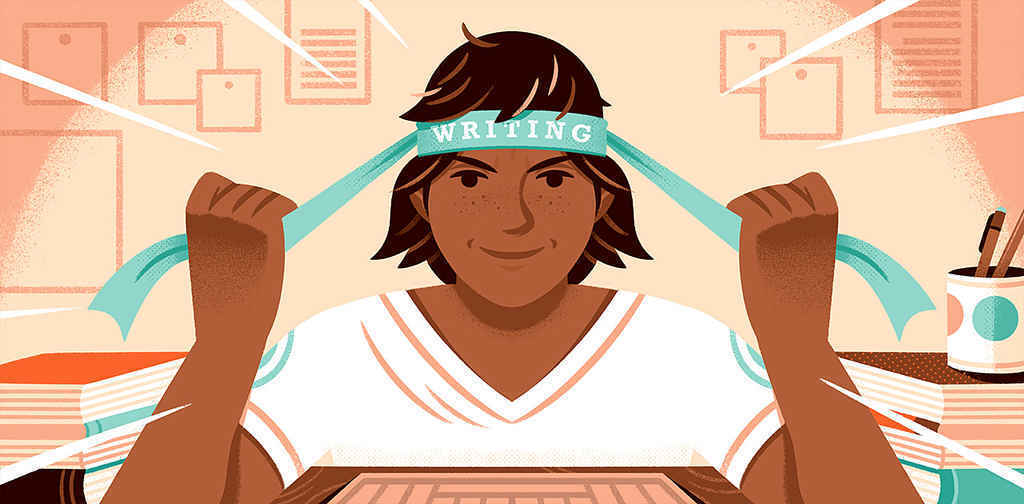
Here are a few tips for establishing a writing habit:
Make writing a priority. If you want to be a professional writer, set non-negotiable writing time in your calendar and arrange your other commitments around it.
Define your writing goals. Whether it’s a daily number of words or completing a task in a set number of days, goals help break larger projects into manageable chunks — so you’ll be less overwhelmed and more likely to knuckle down and write.
Identify your ideal writing times . Do you tend to get the most done right after waking up in the morning, or during the quiet hours of the evening? Figure out your windows of productivity and capitalize on them.

FREE COURSE
How to Build a Solid Writing Routine
In 10 days, learn to change your habits to support your writing.
However, no matter how watertight your writing routines are, every author can benefit from a helping hand to perform at their best and become an even better writer. Thankfully, there are some apps for that.
2. Use writing tools to improve your output

Different tools can impact your output in different ways: for example, online whiteboards like Miro can help you visually sketch out your book’s outline and character bios, and help you define the mood of your world-building. Tools like Grammarly can identify and fix typos and grammatical errors, whereas browser blockers like Cold Turkey can help to minimize distractions and stay productive.
When it comes to using professional writing software, you could use tools like Reedsy Book Editor to enjoy smooth collaborative editing, keep track of your word count goals, and format your book for distribution.
Which writing app is right for you?
Find out here! Takes 30 seconds
Finally, workspace tools like ergonomic chairs and standing desks can also largely influence the quality and proficiency of your writing (we also hear that houseplants can boost creativity, but don’t quote us on that).
But, before you get too comfortable in your writing nook surrounded by all your lovely tools, you may want to consider going back to class…
3. Take classes to pick up credentials
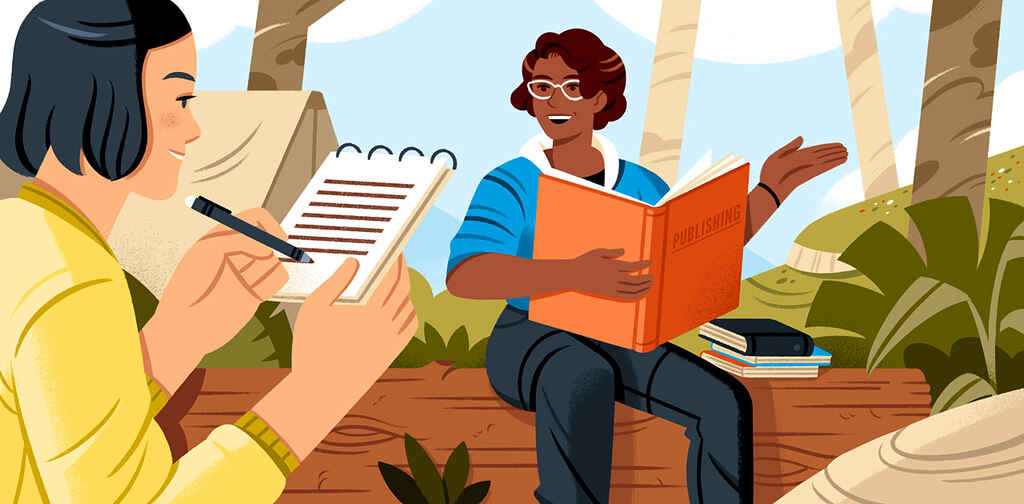
- Journalist — write for newspapers and magazines. Requires top-notch research skills, the ability to be objective, and to meet strict deadlines.
- Columnist — write for newspapers and magazines. Unlike journalists, columnists offer their subjective opinion and insight on current events.
- Travel writer — chronicle your adventures across the globe to give advice and inspiration to other travelers.
- Copywriter — write marketing copy for brands, companies, or organizations.
- Technical writer — turn complex jargon into concise information that users of a product or clients of a company can clearly understand.
- Web content writer — write online blog posts and articles for brands, companies, or organizations.
- Ghostwriter — write content on behalf of other people or organizations. Learn more about becoming a ghostwriter here!
- Grant writer — write documents to help organizations seeking grants.
The options are plentiful. But if you think you’ll need academic credentials, let's take a look at your choices in closer detail.

JOIN REEDSY
Find exciting new projects
We connect publishing professionals with our community of 1,500,000 authors.
You needn't look too hard to find authors who emerged from MFA programs to establish glittering literary careers. For example, both Flannery O’Connor and Rachel Kushner are MFA babies.
Then again, you can find just as many authors who didn’t study anything related to writing and worked in completely unrelated industries before becoming bestsellers — like Charles Bukowski (a postman), Haruki Murakami (a jazz club manager), and even Harper Lee (an airline ticket clerk). After all, life experience is a key ingredient of any good fiction.
Becoming a novelist doesn’t require any specific credentials beyond the ability to write (and market) a great story. Pursuing an MFA can certainly help you develop your craft, network with established and aspiring writers, or lead you to some creative writing gigs, but it’s not a shortcut to success. In addition, the majority of MFA programs focus on literary fiction, creative nonfiction , and poetry . So if you want to become a fiction writer, an MFA is likely not a necessary stepping stone for you.
Bachelor’s Degree (BA)
While higher education is not a required credential for becoming a novelist , academic qualifications can be more important for nonfiction writers. In many cases, success as a nonfiction author relies upon your subject authority and often necessitates the relevant credentials as proof. That might include a degree or other relevant experience in the field. Imagine yourself picking up a nonfiction book and turning it over to read the author's bio : what kind of credentials would assure you this is someone who knows what they’re talking about?
In terms of journalism, most news outlets will require applicants to have completed a Bachelor’s degree before adding them to the payroll. While majoring in journalism is certainly a sound option, many news outlets require a literature degree or similar, as you’ll have many of the same skills but no biases in your journalistic practices. It's also typical to double-major or major-minor in a combination of journalism and the field you’re interested in writing about.
Doctorate (Ph.D.)
A Ph.D. in literature or creative writing is often preferred by people who want to teach literature or writing at college or university levels. Overall, a doctorate may also be appropriate if your writing draws extensively from academic research or scientific findings — as it will give you more subject-matter authority.
Associate Degree
An associate degree typically lasts two years and can be more industry-focused than a BA. If you’re hoping to become a copywriter or web content writer, pursuing an associate degree in media, marketing, or writing might be a good way to lay the foundation for your career.
Certificate
Certificates are short-term programs that provide foundational education and skills-based training. They typically last a few weeks to a few months, and, as with the associate degree, it’s a good option for aspiring freelance writers .
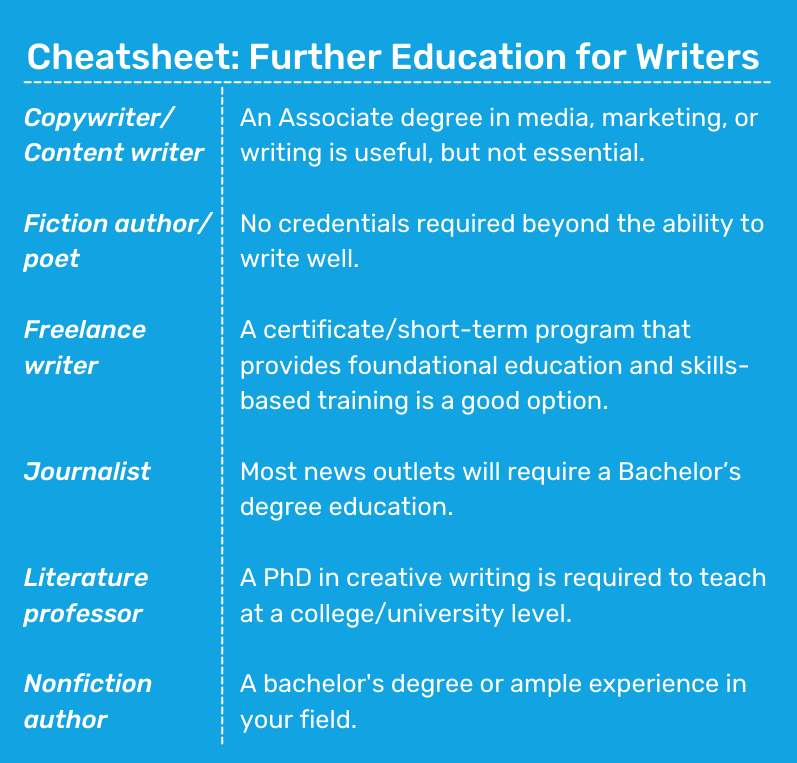
4. Seek opportunities to publish your work
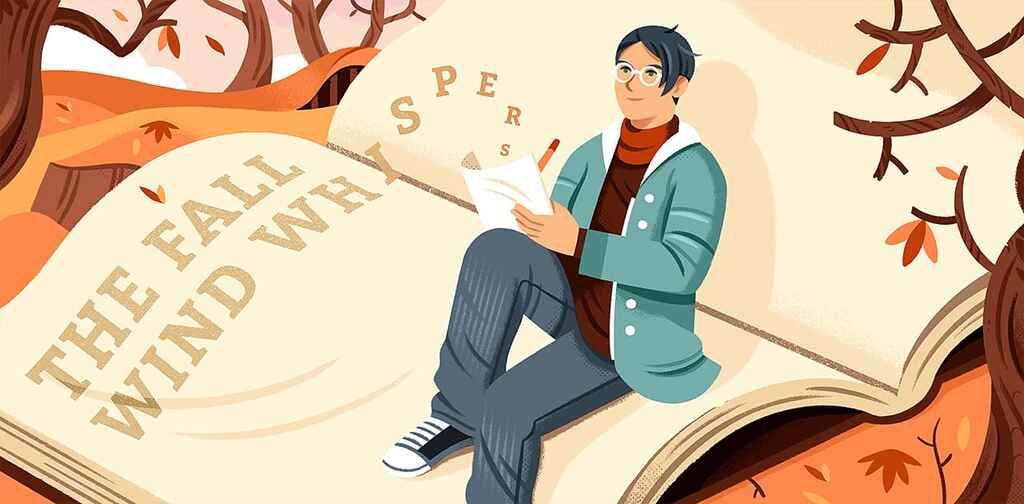
If you’re an aspiring fiction writer, follow the likes of Ursula K. Le Guin and Ernest Hemingway, and get your foot in the door by submitting your short stories to magazines and contests . Here are a few places where you can do just that:
- Literary magazines accepting submissions
- Vetted writing contests and their deadlines
- Reedsy’s own weekly short story contest
- Publications accepting short story submissions
To ensure your t’s and i's are all properly crossed and dotted, here is a submissions checklist that’s sure to keep you straight!
Make the process of writing your first novel easier by using a story template like the one below.

FREE RESOURCE
Get our Book Development Template
Use this template to go from a vague idea to a solid plan for a first draft.
Nonfiction writers have ample opportunity to get their byline out in the world too. If there’s a particular niche you’re interested in, start by putting together a list of relevant publications. Most websites will have a submission section with guidelines for submitting a piece.
Follow specific editors on Twitter to keep up with when magazines are accepting pitches. They will usually tweet when their inbox is open (and what they’re looking for in a pitch) — plus many of them are open to questions. If you don't know where to find them, look for names via magazine websites, the publication’s LinkedIn page, or simply use the Twitter search function. Editors of magazines usually tell you who they are in their Twitter bio!
Put your pitches and deadlines in a calendar
Next, get your ‘pitching calendar’ organized by listing the outlets you want to write for, your premise for each pitch, and any deadlines to keep in mind. You might also want to make note of any feedback you receive. For instance, an outlet might let you know that your piece wasn’t right for them “at this time,” or they might clarify what they’re looking for in more specific terms.
Here are a few resources that connect writers with publications looking for submissions:
- Authors Publish Newsletter
- NewPages Classifications
- Funds for Writers Newsletter
Consider self-publishing
If you have a book idea you can’t stop thinking about and your goal is to see it materialized, then you might want to consider self-publishing. Getting your book out into the world is easier than it’s ever been, and we’ve detailed the whole process in another guide . Plus, you can do it in your own time.
Though some traditionally published household names nab hundreds of thousands in advances, those are the outliers. Many more self-published authors make a living from their writing than their traditionally published counterparts: this report found that the number of indie authors earning five to six figures per year from book sales was much higher than the number of Big 5 authors earning the same.
If you’re still on the fence about which publishing route to take, why not take this one-minute quiz to find out for sure which option is the most viable for you?
Is self-publishing or traditional publishing right for you?
Takes one minute!
Once you start to get a few publications under your belt, it’s time to put them together in a nicely bundled portfolio that shows the world (and potential clients) what you’re capable of.
5. Create a strong portfolio

Create a website
To create your own website, you must first register a domain name on services like GoDaddy or Namecheap (e.g. authorname.com), or sign up for a free site with services like WordPress, Wix, or SquareSpace (e.g. authorname.wordpress.com) 一 although the first option is more professional. If you're not too confident in your tech skills, consider hiring a professional web designer who can help you build a website that stands out.
Use a portfolio site
If you don’t want to spend too much time designing a website, you can always turn to a trusted portfolio site. All you need to do is create an account with them and input your personal information. Here are a few popular options:
- MuckRack: a popular platform for journalists and PR professionals.
- Contently: a useful site for content writers.
- Clippings.me: provides a clean-cut design for every kind of writer.
Perfect your website
Your author website should reflect your personality, list your credentials, and most importantly — show your work.
There are different ways to present your portfolio: you could divide your writing into different niches like Jennifer Fernandez , or you could go for a concise bio that packs a punch in terms of insight into your professional background as in Alice Driver ’s portfolio. For author websites , it’s key to give visitors a clear route to buying any books you’ve published (check Austin Kleon ’s example).
Once your website is live, it might take a while for word of mouth to spread and for job opportunities to come your way. So, while you get the ball rolling, consider reaching out to organizations that could help you support your dream (read: paying the bills!).
6. Apply for writing grants

Here’s a reliable list of grants for you to peruse — some will have no stipulations regarding what the money is spent on, and others will be for specific reasons, like traveling to a writers’ retreat or conference. There are also many grants specifically intended to help marginalized communities get a leg up in the industry. Make sure you check out our video guide for some helpful advice on making a successful application.

Whether or not your career will benefit from scoring a grant, you’ll soon learn that if you want to reach new literary heights and establish yourself as a writer, you’ll need the help of other professionals in the space.
7. Collaborate with professional editors

An editor’s bread and butter is to revise your work so that it’s ready for the big stage, from spotting plot holes, improving text quality, and examining your manuscript for inconsistencies before its release. More than that, working with an editor will teach you about the ins and outs of the publishing industry — including the all-important standards and best practices of the literary world.
Finding a good editor is always a type of collaboration worth investing in if you want to speed up your development and make a leap forward in your journey to become a professional writer.
Hopefully, this post has shown you how to get things going so that you can make writing a financially viable career. To wrap things up, there’s nothing quite as inspiring for budding writers as words of wisdom from those who have achieved writerly acclaim. So tuck into these brilliant books about writing , and then pick up your pen and get going. We look forward to seeing your name in print!
Earn more than you would at a publishing house
Create your free Reedsy profile to get started.

Create your Reedsy freelancer account
We have some great projects already lined up for you to work on.
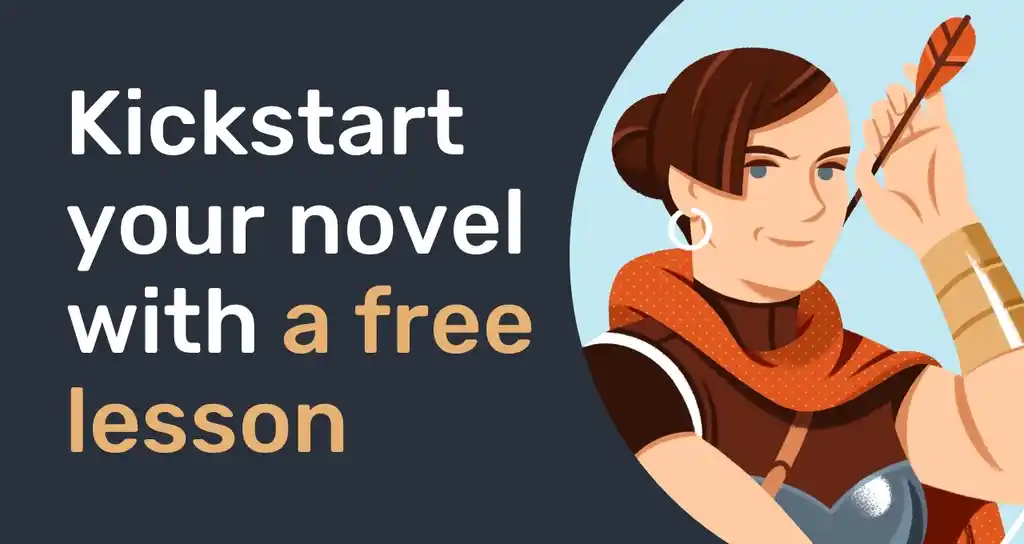
Try our novel writing master class — 100% free
Sign up for a free video lesson and learn how to make readers care about your main character.
1 million authors trust the professionals on Reedsy. Come meet them.
Enter your email or get started with a social account:

ChatGPT for Teachers
Trauma-informed practices in schools, teacher well-being, cultivating diversity, equity, & inclusion, integrating technology in the classroom, social-emotional development, covid-19 resources, invest in resilience: summer toolkit, civics & resilience, all toolkits, degree programs, trauma-informed professional development, teacher licensure & certification, how to become - career information, classroom management, instructional design, lifestyle & self-care, online higher ed teaching, current events, how to become a curriculum writer.

If you have a talent for technical writing and want a fast-growing job in the education field, consider a curriculum writing career. A curriculum writer is responsible for developing new and revised instructional materials for school districts, media companies, and other businesses.
As a curriculum writer, you will create education curriculum, manage professional development, perform evaluations, review education materials like textbooks and computer programs, train instructional staff, and coach teachers.
Curriculum development jobs
Also known as curriculum developers and instructional coordinators, curriculum writers are often licensed teachers or school administrators. Their responsibility lies in developing and implementing new techniques to improve education and training quality.
According to the most recent statistics from the United States Department of Labor, curriculum developers and instructional coordinators held 139,700 jobs in 2012. While most of them worked in public or private schools, some were employed by colleges, professional schools, and government offices.
As a curriculum writer, you will work a full-time schedule in an office environment. Unlike other educators, you will probably work year-round without a summer break. Curriculum writers often meet with teachers and administrators before and after school or business hours.
In schools, curriculum writers develop and coordinate the district’s teaching curriculums and standards. In companies and governments, they develop creative activities that support training course objectives.
Curriculum development education
Most curriculum writers, especially school district instructional coordinators, must have a master’s degree. Many employers also require them to be licensed teachers or administrators.
In your pursuit of a curriculum writer career, you must earn a master’s degree in curriculum and instruction or related field of study. Some curriculum developers also hold a master’s degree in a specialized field of study, such as math or science.
Master’s degree programs teach curriculum design, instructional theory, and data analysis. In order to enter these programs, you must first earn a bachelor’s degree in teacher education or a related field.
Public schools usually require their curriculum developers to have a teaching or education administrator license. Licensure requirements vary for high schools, middle schools, elementary schools, and school principals.
Your skill set must include analytical, communication, instructional, and decision-making skills as well as people skills. Most school districts require curriculum writers to have some teaching or school administrator experience.
Curriculum development salary
According to the Department of Labor’s Bureau of Labor Statistics, $62,270 is the median salary for curriculum writers. Elementary and secondary schools typically pay higher salaries than colleges, professional schools, or governments.
Employment for curriculum writers is expected to grow by 7 percent between now and 2024. This anticipated growth is based on America’s focus on improving teacher effectiveness in the schools. Local school districts and state governments are working to improve teacher effectiveness by evaluating student learning and test scores.
Ready to Research Degree Programs?
- Research Master Degree Programs
- Research EdD Degree Programs
- Research Bachelor Degree Programs
- Research Associate Degree Programs
- Research PhD Degree Programs
- Research Education Specialist Degree Programs
- Research ALL Degree and Certificate Programs
You may also like to read
- Tips in Teaching a Hands-On Math Curriculum
- Pre-K Home School Curriculum Examples
- Teaching License Reciprocity Explained
Categorized as: Teaching Careers and Professional Development
Tagged as: Assessment Tools
- Certificates in Trauma-Informed Education and...
- Master's in Reading and Literacy Education

- Online Course
How to Become Freelance Education Writer in 2024?
Embarking on a career as a freelance education writer has become more lucrative than ever.
The changing landscape of the education sector has increased the demand for education writers. While this domain was once primarily reserved for professors and educators, the rise of information has broadened the horizon. With the emergence of new fields of study, a plethora of opportunities awaits freelancers. Dive into our comprehensive guide on how to become a freelance education writer and seize these exciting opportunities.
What is Education Writing?
Education writing encompasses a vast array of specializations. It includes writing textbooks, eBooks, academic journals, lesson plans, and developing an entire course curriculum. It also comprises writing about teaching dynamics, legislative issues in educational setups, online learning materials, and many others that affect education stakeholders like students, teachers, parents, and administration. From reporting incidents in educational setups to developing curriculums for online courses, freelance educational writers, write about everything that is education-related.

What are the Types of Freelance Education Writing?
There are different categories of writing in education. You may either be writing content courses or perhaps a legal advisory booklet for resolving teacher-student conflicts. The field is wide open. Since the education domain is so diverse, many freelance education writers don one or more hats.
Here are the common categories of educational writers:
- Education Reporter: They usually write about high-profile educators, innovative learning, trendy events, recent incidents, or developments in educational setups. See educational report writing details and examples here
- Curriculum Developer: They create learning materials, lesson plans, and curricula for a particular course or grade. See details about how to become a freelance curriculum developer.
- Public Communication Officers: They write about innovative and distinguished characteristics of educational institutions and the programs they offer. Academies hire them to develop their online presence. See here what it takes to become a freelance public communication officer in education.
- Course Material Writer: Writes material for textbooks, eBooks, online courses, training manuals, lessons, teacher resources, and student guides. Here are the details of how it works.
- Assessment Developer: Prepares assignments and quizzes from learning materials. Here is how online platforms offer assessment development.
Some of the above writing requires extensive knowledge of the subject, while others can be done with research and effort. The field is fertile, and opportunities are endless. Assess your capabilities and choose the niche wisely.

Here’s How to Become a Freelance Education Writer:
1. do your research.
Before stepping into a freelance education writing career, you need these preparations:
- Do your research to find out which type of educational writing services you can provide.
- Know about the different educational content available online and decide which type you can write well .
- Explore online education writing opportunities and shortlist the best ones. Here is one for your reference.
- Learn and develop the skills required to become a freelance education writer.
From this research, you will know about what the education market demands, who are the clients, and what area you can work and excel in.
2. Earn Required Skills
Freelance education writing differs from general content writing. It requires a particular set of skills and deep knowledge about the domain. If you are interested in pursuing this career long-term, earn the required skills and certifications. You should also gain practical experience and mingle with the people involved in the education sector. This will enhance your perspective and enrich you with practical knowledge. Working in a single area of educational writing may or may not prove to be profitable in the long run. It is wise to learn new skills to get access to a wider selection of work prospects and to make more out of your time.
3. Create a Portfolio
Once you clearly understand what the educational writing market demands and what you can offer, the next step is to create an online portfolio. Showcase your skills, services, samples, and related qualifications. Explain how you can help the intended clients in achieving their goals through your writing services. Do you want to learn how to create a persuasive writer portfolio? Here is a complete guide. Tip: Work on your LinkedIn profile too. It must sound like you are a dedicated education writer. Polish your social media profiles as well, so you can build your brand in your chosen field.

4. Look for Prospective Clients
Once you showcase yourself online as a freelance education writer, look for potential clients. Search for magazines, blogs, online learning platforms, and other sources that hire freelance writers. One of the best hunting grounds is online job portals like Upwork and Freelancer.com. Create your profile on multiple platforms and bid for jobs that match your skills. Here are the top freelancing websites to begin your search. Starting with these online platforms will boost your confidence and will provide you with solid proof of work to be shared with other clients. Tip: Make your portfolio SEO optimized and ask other people in your circle to link back to your portfolio so it will rank high on searches.
5. Pitch Your Services
Starting with an online freelancing platform is good, but pitching directly to potential clients is better. Prepare a few best samples of your work and build a contact list of potential clients to send your pitch to. Don’t forget to include links to your online freelancing platforms in your proposal letters. Here is a comprehensive guide on how to write a landing pitch.
6. Expand Your Network
Besides getting involved in an online community of freelance writers , you must also expand your offline network. Contact people in your circle, like former classmates, teachers, or mentors. Someone may need your services to develop course material or write an innovative teaching strategy. Expanding PRs may also get you a permanent position as a freelance education writer in an educational magazine or an online tutorial.
7. Learn, Explore, and Hunt for Big Opportunities
Your learning journey as a freelance education writer never ends. The more skills you gain and develop, the more you will grow in this career. Keep on checking how online courses structure their content, how some video tutorials set out scripts, and how curricula, legislations, and strategies evolve in the education sector. Adapt to these developments. Write in the most updated manner and offer the most recent education writing services to your clients.

Thoughts to Ponder
Gear up your tools and skills and follow these steps one by one to move up in your education writing journey. By following this practical guide, you will eventually find your place under the sun as a freelance education writer. Perhaps you will become an expert curriculum developer or a fantastic education reporter. Remember: Mastering one skill is better than poking your nose into each one. Decide what service to offer in education writing and work hard to master it.

Most Asked Questions in the Field of Education Writing
1. how much do freelance education writers earn.
It depends on what you are writing and for whom. Some education writers earn more than $10K per month and others can hardly make $1000 per month. Curriculum and course material developers earn more than education report writers. Similarly, working directly with clients will earn you more bucks than working on freelance platforms. It’s different for everyone. The effort, time, and networking strategies you apply will eventually pay off. On average, you can easily earn $30 per hour from your education writing services.
2. Education vs. Academics writing, what’s the difference?
Most people usually think they are the same, but they are not. There is still a thin line that separates the two. Academic writing is about writing research articles, essays, personal statements, solving assignments, and backing up information with sources. Whereas education writing is about creating curriculum and course materials. It may also involve reporting and analyzing the current education system.

3. What to consider before leaving your current job?
If you are a schoolteacher or a college professor who is contemplating becoming a full-time freelance education writer, think twice! Although freelance education writing can be a profitable career, it is not a stable source of income. You may earn high at one time and zero at the other. Be ready to face those job security issues that accompany every freelancer. Put aside some savings as you will need them at the beginning of your freelance writing journey. Here is some expert advice to follow before becoming a freelance education writer.
Freelance education writing can be a fulfilling career that’ll bring in a good sum of money. Education writers normally get paid more than general content writers, but it also requires higher qualification criteria. You need to hone your writing skills and deepen your subject knowledge to embark on this lucrative career. Take the time to study and follow the step-by-step guidelines on how to become a freelance education writer we presented here. Now is the time to kick-start your career in this profession . Next up, you may want to explore a list of the top educational book publishers .

Digital marketing course: Join my full AI Marketing course, with over 6h and 30 minutes of video lessons and 5 bonuses and learn the skills necessary to thrive as a marketer in the digital era.

Rafal Reyzer
Hey there, welcome to my blog! I'm a full-time entrepreneur building two companies, a digital marketer, and a content creator with 10+ years of experience. I started RafalReyzer.com to provide you with great tools and strategies you can use to become a proficient digital marketer and achieve freedom through online creativity. My site is a one-stop shop for digital marketers, and content enthusiasts who want to be independent, earn more money, and create beautiful things. Explore my journey here , and don't miss out on my AI Marketing Mastery online course.
CAREER PATHWAYS
Looking for the perfect job? Explore our Career Guides!
How to Become a Writer
By Andrea Delgado
Published: April 1, 2024
Embarking on the journey of how to become a writer entails a profound immersion into the art of weaving words into narratives that resonate with readers on both intellectual and emotional levels. In this exploration, we delve deep into the multifaceted path of becoming a writer, examining the trials and tribulations, as well as the practical tools and techniques essential for honing one’s craft and navigating the ever-evolving literary landscape.
Career Summary
Writer salary.

Writers’ salaries are subject to a myriad of influences that shape their income trajectory. To provide a glimpse into this dynamic landscape, we present a fundamental delineation of the writer salary across different stages of their careers utilizing data from glassdoor.com :
- Entry Salary (US$50k)
- Median Salary (US$60k)
- Executive Salary (US$98k)
Notably, the average income earned by a writer in the United States finds itself in close proximity to the national average income for all occupations.
What does a Writer do?
The writer job description involves creating written material about a wide range of subjects and in various forms. They dig into research, put together, and polish articles, essays, or reports, all while making sure they follow specific rules and meet deadlines. Writers use their knowledge to share information in a way that gets the message across clearly and captures the reader’s interest with their words.
Writer vs Author
What is the difference between a writer and an author? Becoming a writer involves crafting words into engaging content, often for various purposes such as marketing, journalism, or storytelling. Writers can earn income through freelancing or employment, contributing to a diverse range of projects.
On the other hand, an author typically focuses on creating longer-form, published works such as books or novels. While both writers and authors require strong writing skills, authors often aspire to achieve recognition through their book publications, which can contribute to their reputation and possibly higher earning potential.
Writer Career Progression
- Entry-Level Writers: individuals develop core writing skills by crafting content for various platforms.
- Mid-Level Position: Writers specialize in specific niches and genres, building a diverse portfolio.
- Senior Writers: They lead projects, oversee content strategies, and mentor junior staff.
- Recognized Author: Extensive published works and literary contributions establish a distinguished reputation within the writing community.

- Working as a writer offers the opportunity to express creativity through words while continuously enhancing communication skills.
- Writers also enjoy the flexibility of freelance work and the potential to explore diverse topics, expanding their knowledge base.
- Additionally, the satisfaction of seeing one’s words resonate with readers and having a tangible impact can be among the most rewarding aspects of a writing career.
- Working as a writer can entail coping with sporadic income due to fluctuating project demands and uncertain payment schedules.
- The solitary nature of the job may lead to feelings of isolation and a sedentary lifestyle.
- Moreover, dealing with writer’s block and the pressure to consistently produce high-quality content can be challenging, potentially impacting mental well-being.
Valuable Skills to Have as a Writer
- Proficient research abilities.
- Strong editing and proofreading skills.
- Capacity to adapt writing styles to different genres and audiences.
- Time management.
- Creativity.
Popular Writer Specialties
- Creative Fiction
- Technical Writing
- Content Marketing
- Copywriting
- Academic Writing
How to become a Writer

Do I need a degree to become a Writer?
No, a degree is not a strict requirement to become a writer . While formal education in writing or related fields can be beneficial, many successful writers have honed their skills through self-study, practice, and real-world experience. Writing is a skill that can be developed over time, and what matters most is your dedication, creativity, and ability to produce compelling content. However, certain writing careers, such as academic or technical writing, might require specialized knowledge that a degree can provide. Ultimately, your portfolio and writing abilities are often more important than having a specific degree.
How long does it take and how much does it cost to get a degree in writing?
The time and cost to obtain a degree in writing can vary significantly based on factors such as the level of the degree (associate, bachelor’s, master’s), the institution you choose, and whether you attend full-time or part-time.
Here’s a general overview:
- Associate Degree (2 years): An associate degree in writing typically takes around two years of full-time study. The cost can vary widely depending on the college or university, but community colleges often offer more affordable options.
- Bachelor’s Degree (4 years): A bachelor’s degree in writing usually takes four years of full-time study. The cost can range from $10,000 to $32,000 depending if you’re an in-state or out-of-state student.
- Master’s Degree (1-2 years): A master’s degree in writing typically takes 1 to 2 years to complete. Costs vary greatly, with public universities generally being more affordable than private ones.
Keep in mind that there are online and part-time options available, which can impact both the duration and cost of your degree. Additionally, financial aid, scholarships, and grants may help offset the costs. It’s important to research and compare different institutions and programs to get a better understanding of the specific timeframes and costs associated with obtaining a degree in writing.
Can I complete an online degree program in writing?
Yes, you can complete an online degree program in writing . Many colleges and universities offer fully accredited online writing programs at various levels, including associate, bachelor’s, and master’s degrees. Online writing programs provide flexibility, allowing you to study and complete coursework from the comfort of your own home or any location with internet access.
When considering an online writing program, be sure to research the institution’s reputation, accreditation status, faculty expertise, and curriculum. Look for programs that align with your goals and interests as a writer. Keep in mind that online learning requires self-discipline and time management skills to succeed, as you’ll need to balance your studies with other commitments. Overall, an online writing degree can provide you with valuable skills, knowledge, and credentials to pursue a career in writing or related fields.
Common Steps to Become a Writer
Develop writing skills.
Dedicate time to practice writing on a consistent basis, which helps refine your skills and uncover your distinct writing voice. Regular practice not only hones your craft but also allows you to explore various writing techniques and discover the individual flair that sets your writing apart. By consistently engaging in writing exercises, you gradually sharpen your proficiency, enabling you to effectively communicate ideas while expressing your unique perspective.
Valuable skills for a writer include proficient research abilities to gather accurate information, strong editing and proofreading skills for polished content, and the capacity to adapt writing styles to different genres and audiences. Additionally, time management is crucial to meet deadlines, while creativity and a keen eye for detail enhance the overall quality of written work. Effective communication skills also help writers collaborate with clients and editors, ensuring a successful writing career.
What are some web resources to learn skills to become a writer?
There are numerous web resources available to help you learn the skills needed to become a writer.
Here are some reputable platforms and websites where you can find valuable writing resources:
- Writer’s Digest University : Provides online workshops and tutorials for various aspects of writing, from craft to publishing.
- Grammarly Blog : Offers writing tips, grammar advice, and insights to improve your writing skills.
- The Write Practice : Provides writing prompts, exercises, and articles to help you refine your writing.
- Purdue Online Writing Lab (OWL) : Offers comprehensive resources for academic writing, including style guides and citation guidelines.
- Daily Writing Tips : Offers daily tips and articles to enhance your writing skills and vocabulary.
- NaNoWriMo (National Novel Writing Month) : Hosts an annual writing challenge in November, encouraging participants to write a novel in a month. Their website also offers resources and community support.
- Writers Write : Provides writing prompts, resources, and articles on various aspects of writing.
- Literary Hub : Offers a wealth of articles, interviews, and insights into the writing and publishing world.
Read Widely
Delve into a wide array of genres and writing styles to broaden your understanding and draw inspiration from different literary landscapes. By immersing yourself in various types of literature, you not only enrich your knowledge base but also gain fresh perspectives that can fuel your creativity. This exploration of diverse genres cultivates a well-rounded appreciation for storytelling techniques, enhancing your ability to craft engaging narratives that resonate with a wide range of audiences.
Create a Portfolio
Gather a selection of your finest pieces, showcasing the breadth and depth of your writing prowess, which serves as a compelling testament to your skills for potential clients or publishers. Your portfolio becomes a visual representation of your journey, offering a glimpse into your writing journey, style, and versatility. By curating a collection of your most impressive work, you provide a tangible demonstration of your capabilities, making a persuasive case for why you are the ideal candidate for writing opportunities.
Submit and Network
Proactively share your work with appropriate platforms, whether it’s online publications or literary magazines, and participate in relevant writing events. Simultaneously, foster connections within the writing community by reaching out to fellow writers, attending workshops, and engaging in discussions. Through your submission endeavors, you amplify your visibility in the writing sphere, while networking provides the opportunity to exchange insights, collaborate, and forge valuable relationships that can fuel your writing journey.
Stay Persistent
Acknowledge that encountering rejections is an inherent aspect of the path; however, these setbacks should not deter your dedication to writing. Instead, use them as stepping stones for continuous growth. Continue honing your craft, nurturing a mindset of ongoing learning, and relentlessly seeking new avenues for growth. By remaining steadfast in the face of challenges, you not only develop your skills but also demonstrate the unwavering commitment that is often the hallmark of successful writers.
What are the Internship Opportunities for a Writer?
Securing a writer internship can provide valuable hands-on experience and networking opportunities.
While availability may vary, here are places to explore and potentially find writer internships:
- Research: Look into companies, publications, or organizations that align with your writing interests. Research their websites, social media , and job boards for internship openings.
- University Career Services: If you’re a student, your university’s career services office may have resources and connections to help you find writing internships.
- Job Search Websites: Utilize platforms like LinkedIn, Indeed, Glassdoor, and intern-specific websites to search for writer internships. Use relevant keywords such as “writing internship,” “content intern,” or “editorial intern.”
- Industry-specific Websites: Check websites related to your writing niche. For example, if you’re interested in journalism, websites like JournalismJobs or MediaBistro might list relevant opportunities.
- Networking: Attend writing workshops, conferences, and local writing events to connect with professionals who might know of internship openings.
- Remote Opportunities: Consider remote internships if you’re unable to find local options. Many companies offer virtual internships that allow you to work from home.
Licensure and Certification
There isn’t a standard licensure or certification process specifically for becoming a writer, as writing is a creative skill that doesn’t typically require formal licensing. However, certain certifications and courses can enhance your writing credentials and skills.
Here are a few options:
- Copyediting or Proofreading Certification: If you’re interested in editing or proofreading, you can pursue certification from organizations like the American Society of Journalists and Authors (ASJA) or the American Society of Copy Editors (ACES).
- Technical Writing Certification: For those interested in technical writing, the Society for Technical Communication (STC) offers certification programs that can enhance your technical writing skills.
- Creative Writing Workshops and Courses: Many universities and online platforms offer creative writing workshops and courses. While these may not result in a formal certification, they can provide valuable learning experiences and help you refine your writing skills.
- Content Marketing or Digital Writing Certification: Organizations like HubSpot offer certifications in content marketing, which can be useful if you’re interested in writing for digital platforms.
- Academic Writing or Publishing Certification: Organizations like the Council of Science Editors (CSE) offer resources and training for those interested in academic writing or publishing.
- Freelance Writing Associations: Joining associations like the National Association of Independent Writers and Editors (NAIWE) or the Editorial Freelancers Association (EFA) can provide networking opportunities and resources.
Remember that the writing field values experience, a strong portfolio, and consistent practice. Certifications and courses can be beneficial in terms of learning and skill development, but they may not be mandatory for pursuing a writing career. Be sure to research any specific certifications or courses you’re considering to ensure they align with your goals and interests.
What’s the Career Outlook for Writers?
According to the Bureau of Labor Statistics (BLS), the field of writers and authors is expected to experience a 4 percent growth between 2021 and 2031, which is on par with the average rate of growth across all occupations. On average, around 15,200 job opportunities for writers and authors are anticipated annually during this decade.

What are the Job Opportunities for Writers?
Job opportunities for writers are diverse and can be found across various industries. Here are some potential job roles and types of companies that hire writers:
Content Creation and Marketing:
- Content Writer
- Social Media Content Creator
- Blog Writer
- Content Strategist
Journalism and Publishing:
- News Reporter
- Magazine Writer
Technical Writing and Documentation:
- Technical Writer
- Documentation Specialist
- User Manual Writer
- Technical Editor
Creative Writing and Entertainment:
- Screenwriter
- Scriptwriter
Academic and Educational Writing:
- Academic Writer
- Educational Content Writer
- Curriculum Developer
- Textbook Writer
Freelancing and Self-Employment:
- Freelance Writer
- Ghostwriter
- Content Creator
- Independent Blogger
Public Relations and Communications:
- Press Release Writer
- Communication Specialist
- Corporate Blogger
Nonprofit and Advocacy Organizations:
- Grant Writer
- Advocacy Content Writer
- Nonprofit Blogger
Technical Industries:
- Software Documentation Writer
- Medical Writer
- Science Writer
Entertainment and Media Companies:
- Entertainment Blogger
- Media Content Writer
- Film Reviewer
Travel and Lifestyle Companies:
- Travel Writer
- Lifestyle Blogger
- Food Writer
E-commerce and Retail:
- Product Description Writer
- E-commerce Blogger
Advertising and Publicity:
- Advertising Copywriter
- Publicity Writer
What Type of Companies Hire Writers?
Companies that hire writers can range from traditional publishing houses and newspapers to digital marketing agencies, tech companies, e-commerce platforms, educational institutions, law firms, and more. Many organizations across industries recognize the importance of effective communication and content creation, leading to a wide array of job opportunities for writers.
What is the Work-Life Balance of a Writer?
The work-life balance of a writer can vary widely depending on factors such as the type of writing, the writer’s chosen niche, their employment status (freelancer, full-time employee, etc.), and individual work habits. Many writers enjoy the flexibility to set their own schedules. Deadlines and project demands can lead to irregular work hours, including evenings and weekends.
Writers often have the option to work remotely, which can contribute to a better work-life balance by reducing commuting time and allowing for a more comfortable work environment. Writing requires focused concentration, which may lead to periods of intense work followed by breaks to recharge. Writing is a solitary activity, which can lead to isolation.
Writers may find that their creative energy ebbs and flows. This can impact their work schedule and the need for breaks or periods of rest. The pressure to meet deadlines and produce high-quality content can lead to burnout. Writers need to be mindful of setting boundaries and taking breaks to avoid exhaustion.
Many writers are passionate about their work, which can blur the lines between work and leisure. While this can be fulfilling, it’s important to ensure that relaxation and personal time are also prioritized.
The work-life balance can differ between various writing roles. For example, a journalist working on breaking news might have a more demanding schedule compared to a novelist working on a long-term project.
Setting clear goals and priorities can help writers achieve a healthier work-life balance by allocating time for both work and personal activities. Overall, achieving a favorable work-life balance as a writer requires self-awareness, effective time management, and the ability to adapt to the demands of different projects. Writers need to find a routine and approach that suits their individual preferences and allows them to maintain their well-being while pursuing their creative and professional goals.
Should I become a Writer?
Deciding whether to become a writer is a personal choice that depends on your interests, skills, goals, and circumstances. Do you genuinely enjoy writing? Are you creative and able to think imaginatively? Writing requires dedication and perseverance. Strong written communication skills are crucial for writers.
Writing offers flexibility in terms of schedule and location. Identify the writing niche that aligns with your interests and skills. Research the job outlook for writers in your chosen niche. Understand that income as a writer can be variable, especially in the beginning. Consider the work-life balance you desire.
Writing can be personally fulfilling, allowing you to share your thoughts and stories with the world. Ultimately, becoming a writer is a journey that requires dedication, continuous learning, and a passion for the written word. If you’re willing to invest the time and effort, and if writing brings you joy and a sense of purpose, then pursuing a writing career could be a fulfilling path for you. It’s also worth exploring writing as a hobby or side gig initially to gauge your level of interest and commitment before making it a full-time pursuit.
Careers Related to Writer
- Content Marketing Manager
- Email Marketing Manager

About the Author
Read more articles by Andrea Delgado
Continue Reading
What is a UX Designer and How to Become One
What is a machine learning engineer and how to become one, what is a ui designer and how to become one, what is an seo specialist and how to become one, what is a recruiter and how to become one, what is a project manager and how to become one, what is a front-end developer and how to become one, what is a product manager and how to become one.

Education Requirements for Writers
Getting started as a writer.
- What is a Writer
- How to Become
- Certifications
- Tools & Software
- LinkedIn Guide
- Interview Questions
- Work-Life Balance
- Professional Goals
- Writer Resume Examples
- Writer Cover Letter Examples
Start Your Writer Career with Teal
Join our community of 150,000+ members and get tailored career guidance from us at every step
Do You Need a Degree to Become a Writer?
Educational backgrounds of writers, a glimpse into the educational tapestry of writers, common educational threads among writers, do writers need specific degrees.
- Linguistic Mastery and Storytelling: Often developed through studies in literature, languages, or creative writing programs.
- Research and Analytical Skills: Essential for non-fiction writers, which can be cultivated in academic fields such as journalism, history, or even the sciences.
- Subject Matter Expertise: Writers often benefit from deep knowledge in specialized areas, which can be gained from any academic discipline.
Forging a Writer's Educational Path
- Writing Practice: Regular writing, whether through personal projects, blogging, or contributions to publications, helps to refine one's craft.
- Workshops and Critique Groups: Participating in writing groups and workshops provides valuable feedback and helps to improve writing skills.
- Continued Education: Engaging in writing courses, seminars, and conferences can keep a writer's skills sharp and up-to-date with current trends.
The Essence of a Writer's Education: Diversity and Adaptability
Most common degrees for writers, english literature or language, creative writing, journalism or communications, technical writing or professional writing, liberal arts or humanities, popular majors for writers, english literature, communications, technical writing, popular minors for writers, digital media, foreign language, why pursue a degree for a writer career, networking and professional development in writing, career opportunities with a degree in writing, degree alternatives for a writer, writing workshops and retreats, online writing courses and platforms, writing competitions and literary journals, professional writing organizations, content creation and blogging, navigating a writer career without a degree, develop a writing routine, create a diverse portfolio, master the art of pitching, build your online presence, network and collaborate, seek feedback and revise, self-publish your work, continuously learn and adapt, monetize your skills, education faqs for writer, do you need to go to college to become a writer, is it worth it to get a degree for a writer role, how important is continuous learning for a writer.
Writer Certifications

More Education for Related Roles
Crafting compelling narratives, engaging audiences with powerful words and ideas
Crafting compelling narratives to drive brand engagement and consumer action
Shaping narratives, refining content to captivate audiences and uphold brand voice
Uncovering truths, shaping public opinion through compelling storytelling and reporting
Shaping narratives and engaging audiences through compelling, creative content
Translating complex tech jargon into clear, user-friendly content, bridging knowledge gaps
13 Ways To Become A Writer (2024)
It’s easier than ever to become a writer today. Here, we feature the skills you need to acquire and the most profitable careers paths available.
The writing advice and resources on this page apply to writers across various industries, niches and all types of writing. You can find resources for improving your writing skills , earning more money, and making an impact.
Writing Advice You Can Apply
If you need specific craft advice that will help you become a good writer, fear not!
On Become a Writer Today, I offer practical writing tips and advice for aspiring writers, authors, storytellers, copywriters, freelancers and more. Here’s a round-up of some of our best resources so you can express yourself clearly and accurately.
1. Pick A Genre Or Niche
Perhaps you want to write thrillers, science fiction, self-development or thriller books?
Start with one.
Most writers begin in a particular genre or niche. This approach gives them confines within which to create and also helps them determine who their ideal reader is.
Read the work of other successful writers in your niche of choice, study their work and then write a piece with your take.
Writing within a specific genre or niche and for particular audiences isn’t a bad thing. It increases your chances of finding more readers and earning more money as a writer.
Later on, when you’re comfortable with a specific genre or niche, you try another. Neil Gaiman started as a graphic novel storyteller. Now, he writes across many genres and media for adults and children.
2. Use The Right Writing Tools
Whatever type of writer you are, we profile the writing tools all types of creatives, including authors, bloggers and novelists, need to achieve their writing goals.
If you’re writing online for the first time, we also profile some of the best writing apps from across the internet, one of which will suit your creative workflow.
Discover the writing tools you need.
3. Beat Writer’s Block

Many new writers worry about turning up in front of the blank page and not having anything to write about. However, professional writers have more trouble determining what to spend time on than searching for a good idea.
You can quickly solve creative problems like writer’s block by reading great writing books, taking writing courses, journaling, and creating a system for capturing ideas as you come across them during your daily life.
Learn how to beat writer’s block .
4. Improve Your Storytelling Skills
Whether it’s an article, blog post or book chapter, the best writing informs, educates, inspires or entertains readers. Good writers and authors understand the art of storytelling. And they regularly use techniques like the hero’s journey .
If you want to become a good writer, it’s not enough to convey information on the page. You must be able to do so in a way that the reader finds memorable and engaging. That’s why we tell stories, and that’s why people read them.
Read our storytelling guide
5. Use A Grammar Checker

Many people you want to become a better writer worry about expressing themselves in the English language.
They also worry about publishing work – grammatically incorrect, unclear, confusing for readers.
You can become a better writer by publishing early and often and gradually improving your skills.
It’s easier never to improve your skills as a writer today by taking online writing courses, studying the basic grammar rules, and learning practical skills that authentic writers can use, including storytelling and writing persuasively.
Read our guide to the best grammar checker .
6. Treat Your Writing Career Like A Business
If you want to write on the side of the busy full-time day job or personal family commitments, that’s fine. Writing is a fun, creative, and rewarding way to spend free time.
But if you want to quit a dull day job and get paid full-time as a professional writer, it’s easier than ever to leap.
You can get paid for publishing books on Amazon, working as a freelance writer, copywriter, or creating content that readers, clients, and business owners love.
Compared to years ago, it’s easier never to build a lasting, profitable writing career. The trick is to become a successful writer is to treat it like a business.
Work on your craft and improve your writing skills every day by taking online courses for writers, reading the best writing books and more. Also, work on your business every day by building your brand and pitching for new writing jobs.
7. Master Self-Editing

Good writers know how to edit their work. They also separate writing and editing into tasks they perform at different times of the day. You can edit your own writing with the help of Grammarly or ProWritingAid. A good self-editing checklist helps too.
We also recommend following Robert A. Heinlein’s 5 Rules For Writers:
1. You must write. 2. You must finish what you write . 3. You must refrain from rewriting, except to editorial order. 4. You must put the work on the market. 5. You must keep the work on the market until it is sold. Robert Heinlein
That said, for longer pieces of work, it’s always best to enlist the help of a professional editor.
Get a self-editing checklist
8. Listen To Writing Podcasts

Years ago, many of the most successful writers and authors were inaccessible. As readers or lovers of their writing, we can only learn from them and their creative approach by reading their books. These days, many successful writers run their podcasts to build better relationships with their readers.
You can become a better writer by either starting a podcast aimed at your ideal audience or listening to popular writing podcasts and practising some of the lessons and writing advice you discover on these shows.
Listen to the best writing podcasts .
9. Pursue Creative Writing

Not every creative wants to get paid for their work. Some people prefer exploring creative writing because they like playing with words and expressing themselves on the page.
You can quickly improve your creative writing skills through lecturing and free writing. Creative writing can take many different forms, including journalling and poetry.
Practicing creative writing is also an excellent way to improve your craft, translating into meaningful work later on.
Learn how to master the creative process .
10. Practice Short-Story Writing
Writing short stories is a great way to improve your storytelling skills and practice different genres.
You don’t need a bachelor’s degree or creative writing MFA either. It’s a good approach if you want to learn how to write without investing a lot of time or resources.
11. Conquer Your Writing Fears
Many aspiring creatives are afraid of what people think of their work, that they’ll make mistakes in public, and face rejection.
If you want to become a professional writer, the biggest problem isn’t what people will think of you or your work, and it’s getting their attention in the first place.
Chances are an editor or even a reader will call you out on a typo or a mistake in your work at some point. But, the days of mistakes set in print permanently are over.
You can easily find, fix and rewrite these stakes and then move on. It’s better to learn from your failure than be held back by a fear of writing.
Editors of popular publications will reject or even ignore your pictures, but that doesn’t mean you should stop trying to gain a foothold in the market. Everyone has to start somewhere. Twelve different publishers rejected the author JK Rowling
Learn how to your writing fears .
12. Abandon Perfectionism
When I started writing, I spent hours every evening for months revising the same sentences. I wanted them to sound perfect, but no matter how many times I edited and rewrote them, I always found room for improvement.
If you want to find success as a writer, abandon pursuing perfectionism. It’s simply procrastination in disguise.
By all means, write and publish something you’re proud of, but if perfectionism is holding you back from pitching an editor, publishing an article or writing a book, you’re doing yourself a disservice.
It’s better to get feedback about a piece of finished writing from an editor and readers about your craft than working on a single story endlessly. That way, you can improve as a writer, and you can also take on more writing projects.
Learn how to beat procrastination
13. Learn How To Use Jobs Boards

If you want to find paying work fast or to see what opportunities exist for professional writers, browsing jobs boards is a great way of getting a feel of the market.
You can see the different types of publications and websites looking for writers, what type of niches they operate in, and potentially how much they pay.
UpWork and The ProBlogger jobs board are both good resources for aspiring content creators, bloggers and anyone who wants to break into a particular market or niche.
If you’re ready to take your writing career more seriously, you consider signing up for premiums jobs for service like FlexJobs.
Apply for many different writing jobs as editors can take a long time to get back to you, if at all. Plus, supplement your job applications by building relationships directly with editors on Twitter.
Find the best writing jobs .
The Most Profitable Writing Careers
Writers can pick from a variety of career paths. You don’t need to confine yourself to one either. For example, an indie author can easily supplement their income by blogging or freelance writing.
We cover some of the options available.
1. Try Freelance Writing

The easiest way to earn money as a professional writer is to become a freelance writer.
If you’re comfortable working the written word, it’s relatively easy to find clients and produce content for them.
You can find work as a freelance writer and earn a couple of hundred dollars each month while working another day job. Many new writers find it’s relatively easy to make money on Medium.
When you’ve an established profile, more opportunities than ever exist for freelance writers today like Writer Access or UpWork.
Become a freelance writer .
Listen to the story of freelance writer Zulie Rane.
2. Become A Content Writer
The internet thrives on content. A content writer produces articles, ebooks, guides, PDFs and even social media posts for clients. They also understand the basics of search engine optimisation, and they get paid well for doing it.
If you want to become a content writer, pick an industry or niche related to your hobbies, skills, or interests.
Then, start related informational articles on a website you own. Alternatively, set yourself up as a professional content writer and work with clients. A content writer gets paid anywhere from two to ten cents a word.
Want to get started? Practice these content writing exercises .
3. Become A Copywriter
A copywriter writes words that sell products and services and usually for business owners or clients.
Copywriters are paid more than traditional freelance writers because it’s a particular skill set requires understanding what customers want and translating their needs into persuasive copy.
Copywriting is an excellent skill to learn because even if you move on, knowing how to write effective copy will help you sell more of your digital products, courses and books. A good copywriter can easily earn over six figures a year writing sales pages, email funnels and other content.
Become a copywriter
4. Start A Blog

If you’re comfortable with the written word, start a blog.
Blogging is a long-term project, and it takes many months to pay off.
You can make a name for yourself by guest posting on popular websites in your niche and by building an email list.
Then, when your blog starts to attract website traffic, start blogging on your site and cultivate a loyal relationship with readers. Starting a blog is also a good approach if you plan to go from blog to book.
Start a blog
5. Write Fiction
Fiction writers can get paid to write by entering writing competitions or by publishing books.
Indie novelists earn a good living by writing a series and building their back catalogue. Some of the bestselling genres include romance, mystery, and thrillers.
Even if you’re going down the traditional publishing route, it’s still a good idea to learn the basics of book marketing as book promotion is up to the author.
So, get comfortable with approaches like advertising on Amazon, email marketing and building an author website.
6. Self-Publish A Book

Years ago, writing and publishing that first book meant finding a book agent and getting accepted by a book publisher. Even then, success wasn’t guaranteed.
Now, it’s easier than ever for anyone to write and self-publishing their first book, thanks to Amazon Kindle and other self-publishing options for creatives.
Once you understand the costs of self-publishing a book , you can get paid as an author of fiction or non-fiction books.
If you learn the basics of advertising, expect to earn between $250 and $1000 from your first book. Publish on Amazon and you will earn up to 70% royalties on your book. Traditionally published authors make between 10% and 12%.
Learn how to write a book .
7. Turn Your Non-Fiction Book Into A Course
If you want to earn a living writing non-fiction books, it’s certainly possible. However, many successful non-fiction authors don’t rely solely on a book to make a living writing.
Their non-fiction books build credibility for their work as a coach, teacher or creative entrepreneur.
Creatives can turn many of the ideas inside of the non-fiction book into an online course. Alternatively, if you enjoy blogging, try going from blog to blog to earn a good living from your writing. Online course sells for anywhere between $49 and $2000 plus, depending on the audience and niche.
Learn how to turn your writing into a course .
8. Write For A Magazine
Writing for a magazine is considered a prestigious writing gig. It’s appealing to see your name in print in a magazine in the shop.
Up until a few years ago, many magazines paid their freelance writers enough to live on. Thanks to the internet, it’s much harder for a magazine to break even. As a result, many magazines cut rates for freelance writers and magazine gigs are drying up.
What’s more, many readers are more likely to read articles online than in a traditional magazine. If you still want to write for a magazine, establish a personal brand.
Build up a portfolio of writing articles, and put them on your website. This approach may mean writing for free for a short period.
Next, find a few magazines in your niche and learn how to pitch an editor with good ideas. That said, you’re unlikely to earn a good full-time living by writing solely for magazines. It’s much easier to earn a good living writing online.
A magazine writer usually gets paid by commission, per piece or by word. Rates range from ten cents upwards.
9. Become A Technical Writer
Technical writing involves writing up procedures, informational articles, checklists, documentation and other literature products, services and internal company processes.
As writing careers go, it pays relatively well as a subject matter can be complex if dry.
A technical writer understands how to break down complex ideas and tasks into step-by-step processes, checklists and procedures that anyone can follow.
Thanks to the proliferation of software as a service and working from home opportunities, an aspiring technical writer can easily build a lucrative career from their home office.
Technical writing is good springboard into other types of writing, for example, copywriting, content writing, and writing for experience design.
A technical writer’s salary starts at under $40,000 but experienced senior technical writers can earn six figures a year.
10. Become A Children’s Book Author
Becoming an author of a thriller or mystery book or contemporary fiction involves writing thousands of words over the course of several months, to say nothing of revising and reworking the manuscript prior to publication. But, a good children’s book usually isn’t longer than a few hundred words.
These authors rely on a captivating hook to gain readers’ attention and on compelling imagery that illustrators can turn into pictures and other graphical elements.
If you enjoy reading children’s books, have kids or like simple but memorable stories, writing a children’s book is a good way to become an author without necessarily quitting your day job.
11. Become A Ghost Writer
Many of the bestselling titles you see on bookshelves by celebrities, entrepreneurs, politicians and public figures aren’t written by the person on the cover. A ghostwriter interviews the author and turns their life story and key ideas into a book in many cases.
Or they take a manuscript or early drafts created by the public figure or celebrity and rewrite it until it’s publishable. Becoming a ghostwriter is a lucrative career.
Still, it involves understanding how to interviewer people, translate life experiences into stories without losing some of the tone of voice and knowing how to write a book.
According to Salary.com, a ghostwriter can earn anywhere between $23,834 to $61,704 per year.
12. Join The Medium Parter Progam

The Medium Partner program pays writers each month for writing and publishing articles about entrepreneurship, personal development relationships, and other topics. Anyone can join.
About 6.4% of writers on Medium earn over $100 per month. That is a small percentage and those are full-time writers. They get featured on the homepage.
Read our guide to Making Money on Medium
Listen to advice from a top Medium publication owner
13. Start a Newsletter
Newsletters are a tried and tested monetisation method for content creators. They’re ideal for writers too. You don’t need to worry about any of the technical parts of running a website, assuming you’re comfortable promoting your newsletter to attract subscribers.
Learn how to start a newsletter readers love.
Listen to an interview with Substack founder Hamish McKenzie

My name is Bryan Collins, the founder of Become a Writer Today. I work with other writers to publish content that will help you earn a living, make an impact and share your stories with the world.
How to Become a Writer: FAQ
What does it take to become a writer.
Learn how to tell compelling stories that readers find inspiring, entertaining, educational or informative. Write every day and work on improving your craft. If you want to get paid to write, spent part of the day working on your business.
Also, consider what type of writer you want to become. Do you want to write fiction or non-fiction? Would you like to get paid for freelance writing, copywriting for blogging? Or perhaps you want to self publish books on Amazon?
It’s all possible with focus and hard work.
Do You Need A Degree To Become A Writer?
Some aspiring writers wonder if they need to get a bachelors degree or even an MFA in English for creative writing.
Take it from a professionally trained journalist: an academic program can certainly help you improve your English and storytelling skills, but it’s not a replacement for doing the work.
Anyone can become a writer, no matter their education. Many authors, like JK Rowling and Roald Dahl, didn’t pursue formal training, like a creative MFA, and they still found success as a writer.
How Can I Get Started As A Writer?
Sit down at a desk and eliminate all distractions and interruptions. Open up your word processor or even get a piece of paper and a pen.
Now, get a timer and start writing about whatever is on your mind for 15 minutes or until you produce 300-words. Don’t stop to question yourself or edit your work.
Your job is to get words out of your head and onto the blank page. (Hint: Use the Pomodoro Technique to Write). The following day, repeat this process. Keep going for several days, gradually building up your word count and time spent writing training.
By turning up consistently, you’ll learn more about the types of writing you’re good at and cultivate the discipline it takes to create regularly.
Once you’ve created a consistent writing routine, you can take the next step: writing stories, building a freelance writing career or blogging.

Bryan Collins is the owner of Become a Writer Today. He's an author from Ireland who helps writers build authority and earn a living from their creative work. He's also a former Forbes columnist and his work has appeared in publications like Lifehacker and Fast Company.
View all posts
How to become a fiction writer
Is becoming a fiction writer right for me.
The first step to choosing a career is to make sure you are actually willing to commit to pursuing the career. You don’t want to waste your time doing something you don’t want to do. If you’re new here, you should read about:

Still unsure if becoming a fiction writer is the right career path? Take the free CareerExplorer career test to find out if this career is right for you. Perhaps you are well-suited to become a fiction writer or another similar career!
Described by our users as being “shockingly accurate”, you might discover careers you haven’t thought of before.
How to become a Fiction Writer
Becoming a fiction writer requires dedication, perseverance, and a willingness to learn and improve your craft. Here are some steps you can take to become a fiction writer:
- Read extensively: Reading is essential for writers because it exposes you to different styles, techniques, and voices. Reading also helps you understand the elements of storytelling and how they work together to create a great story. Make a habit of reading every day, and try to read widely and across genres.
- Practice writing: Writing every day, even if it's just for a few minutes, is essential for improving your writing skills. Set aside a specific time each day to write, and commit to it. You can start with free writing exercises, where you write without any particular goal or direction. Over time, you can start working on specific writing projects, such as short stories, novellas, or novels.
- Learn the craft: Learning the basics of storytelling is essential for becoming a good writer. Take classes or workshops on writing, read books on writing, and join writing groups or communities. You can also learn by analyzing the work of other writers you admire.
- Formal education: Formal education can be beneficial if you are looking to improve your writing skills and gain a deeper understanding of literary techniques. A Bachelor's Degree in Creative Writing or English provides students with access to experienced professors and workshops.
- Find your voice: Your writing voice is what sets you apart from other writers. Experiment with different styles and techniques until you find the one that suits you best. Don't be afraid to take risks and try new things.
- Get feedback: Getting feedback on your writing is essential for improving your craft. Join a writing group or workshop, or hire an editor or writing coach to help you improve your work. You can also share your work with trusted friends or family members who can give you constructive feedback.
- Submit your work: Once you feel confident in your writing, start submitting your work to literary journals, magazines, or publishers. Be prepared for rejection, but don't give up. Keep submitting and keep improving your craft. You can also consider self-publishing your work.
- Keep learning and growing: Writing is a lifelong process of learning and growing. Continue to read, write, and learn new techniques to improve your craft. Attend writing conferences and workshops, and seek out feedback and advice from other writers. Remember, the more you practice and learn, the better writer you'll become.
Associations There are many different associations and organizations that fiction writers can join, depending on their specific interests and goals. Here are a few examples:
- The Romance Writers of America (RWA): This is a professional association for writers of romance novels and other romantic fiction. Members have access to networking opportunities, educational resources, and contests and awards.
- Mystery Writers of America (MWA): MWA is a professional organization for writers of crime and mystery fiction. Members receive access to networking opportunities, industry events, and resources such as webinars and newsletters.
- Science Fiction and Fantasy Writers of America (SFWA): This organization is for writers of science fiction and fantasy, as well as related genres such as horror and magical realism. Members receive access to networking opportunities, resources, and advocacy efforts on behalf of writers.
- International Thriller Writers (ITW): This is a professional organization for writers of thrillers and suspense novels. Members receive access to networking opportunities, educational resources, and industry events.
- Authors Guild: The Authors Guild is a professional organization for writers of all genres. Members receive access to legal resources, advocacy efforts on behalf of writers, and networking opportunities.
- Society of Children's Book Writers and Illustrators (SCBWI): This organization is for writers and illustrators of children's literature, including picture books, middle grade fiction, and young adult novels. Members have access to networking opportunities, educational resources, and industry events.
Online Resources There are many online resources available for fiction writers, ranging from websites and blogs to online courses and workshops. Here are some examples:
- Writer's Digest: Writer's Digest is a well-known resource for writers, with a wealth of articles, tips, and resources on all aspects of fiction writing, from craft to publishing.
- Reedsy: Reedsy is an online platform that connects writers with editors, designers, and other publishing professionals. In addition to its marketplace, Reedsy offers a free writing course, blog posts on writing and publishing, and a podcast featuring interviews with industry experts.
- The Creative Penn: The Creative Penn is a website and podcast run by Joanna Penn, a successful indie author. The site offers articles, courses, and resources on writing, self-publishing, and book marketing.
- The Writers' Workshop: The Writers' Workshop is a UK-based writing school that offers online courses in fiction writing, as well as manuscript assessment services, editing, and coaching.
- Coursera: Coursera offers a wide range of online courses on writing and literature, including courses on creative writing, poetry, and screenwriting.
- Gotham Writers Workshop: Gotham Writers Workshop offers online classes in fiction writing, as well as a variety of other writing genres and topics.
- NaNoWriMo: National Novel Writing Month (NaNoWriMo) is a yearly event that challenges writers to write a novel in a month. While the event takes place in November, the NaNoWriMo website offers resources and support for writers year-round.

Item Writer Job Facts. How to Become a Test Question Writer
Learn how you can leverage your love of writing into a new career or side gig as an item writer for digital learning assessments or certification exams.

If you’re a writer looking for a new career in digital learning , Item Writer should be on your list of opportunities to explore. Item writers are in demand for 2022, as our experience connecting digital learning professionals with corporate and educational organizations proved. These skilled writers play a vital role in assessment development and certification exam development.
If you like to write and have some experience in education, tutoring, or training, this might be the job for you. Even if you don’t have education experience, you could be a competitive candidate if you have subject matter expertise in a certifiable area. Ultimately, many career paths can help you land a role in assessment development as long as you have the writing skills to complement your experience.
Before you make the leap, you probably have a lot of questions. Like what does an item writer actually do, and what skills can help you get the job?
What Does An Item Writer Do?
Item writers write questions for tests or certification exams. They either work with subject matter experts to gather the information they need or they are subject matter experts in their own right. Using learning standards, they create assessment questions and often integrate them into existing learning management systems.
In the corporate space, you may hear them called certification exam developers. Test development companies may call them question writers or assessment writers. Ultimately, all of these roles require strong writing and editing skills and familiarity with assessment design.
Who Hires Item Writers?
Both education and corporate organizations need item writers, including education publishers, associations that certify professionals, and test development companies like PSI Services , ETS, or the College Board. Basically, any organization with a goal of teaching people or preparing them for a test is likely to need item writers at least some of the time.
What Is The Work Environment For Assessment Writers?
Most item writers do the bulk of their work alone. They connect with SMEs or course designers, but ultimately, the work happens between them and their computer. Remote work arrangements are common and some writers are hired on a contract basis.
You may need to learn proprietary software or be familiar with common content and learning management systems to succeed as a test prep writer. Work arrangements tend to be flexible, but pressing deadlines and heavy workloads are common. You might contribute to a bank of items for a particular exam, or craft an entire assessment. And don’t be surprised if you’re asked to sign a non-disclosure agreement, test questions and prep materials are often proprietary.
Would I Be A Good Item Writer?
Do you love language and appreciate the written word? Does helping students and professionals prove their knowledge or get certified feel like fulfilling work? Are you comfortable working independently but contributing to the success of a team? If you answered yes to all of those questions, a role in assessment writing might be right for you.
If you already have subject matter expertise in a topic like the banking industry, accounting or medicine, you’re already part way there. Expert-level knowledge of topics like computer networking, psychology, or human resources can also help you find certification exam developer roles.
Even without that kind of technical knowledge, you can be a great item writer if you can write clearly and enjoy research.
What Do You Need To Become One?
Many item writers either have an English degree, education, or editorial background. Some have specific technical knowledge or industry expertise. The common thread is writing and editing skills and a willingness to learn how to structure questions to support learners. They need to be able to write clear sentence stems, answers, and distractors.
Many test prep writers come from teaching or curriculum development roles. After all, both teachers and curriculum developers are often responsible for writing assessment questions even if just for their own classes. However, subject matter experts in a range of industries also make great test prep writers. They already have the knowledge they need to craft relevant, effective test questions.
Ultimately, to be successful in this role, you need to enjoy writing and find satisfaction in crafting clear sentences.
Education Level Requirements
The education level required for Test Prep roles depends on who you’re writing for. In most cases, your education must meet or exceed the level of the students. For example, if you’re writing questions for nursing students in graduate school, you may be expected to have a graduate degree. If you’re writing ACT and SAT prep questions, you might only need an associate’s degree. Generally speaking, a bachelor’s degree in a writing-related field should be ideal for most roles.
If you make the extra effort to earn a certification in assessment and evaluation or in curriculum design and assessment, this could give you an advantage in your job search. However, most employers won’t require it.
Keep in mind that item writers who develop questions related to specific certification exams often hold those certifications themselves.
Where This Job Could Take You
For some, item writing is a lifelong career. For others, it’s a learning opportunity they can leverage into a role in test development management, instructional design, or curriculum development.
If you have an undergraduate degree in writing or journalism and want to transition to education, this could be the career for you. If you already work in education and want to eventually transition to design and development, this might be the right role for you. It also makes a great side gig for anyone with strong writing skills.
Prepare For Your Job Search
Start revamping your resume with an eye toward those skills that item writers need most.
• Proofreading
• Assessment design
• Content development
• Standards alignment
• Research skills
• Quality control
• Proficiency with digital tools and remote collaboration
Make sure you include any education or certifications that highlight your qualifications. Mentioning publications, writing awards, or exams you’ve prepared can reassure an employer you’re right for the role.
Be prepared to show writing samples and don’t be surprised if you’re asked to write a sample question or two as part of the application process.
Teamed is here to help you find your next job as an item writer or whatever role you’re seeking in digital learning. Check out our job board or contact us today.
Need to hire learning professionals?
Instructional Designer | Learning Technologist | Multimedia Developer Assessment Writer | Project | LMS Administrator | Faculty Trainer | And more!
You Might Also Like

Listen, Think, React: How to Run More Useful Team Meetings

Is this ID Job Right For Me? Ask About the eLearning Production Process.

Be A Better Applicant: How to Follow Up After An Interview
Teamed newsletter.
Get the latest blogs, job openings, and candidates emailed to you every month.
You can unsubscribe at any time and we will never sell, share, or otherwise misuse your email. That’s just not what good teammates do.
- Contact Teamed
- Client Login
- Looking for Opportunities?
- Teammate Login
- Who We Place
- Hiring Resources
- Job Search Resources
- Contact Us OLD
- About Teamed
© Copyright 2024 Teamed

- Bachelor’s Degrees
- Master’s Degrees
- Doctorate Degrees
- Certificate Programs
- Nursing Degrees
- Cybersecurity
- Human Services
- Science & Mathematics
- Communication
- Liberal Arts
- Social Sciences
- Computer Science
- Admissions Overview
- Tuition and Financial Aid
- Incoming Freshman and Graduate Students
- Transfer Students
- Military Students
- International Students
- Early Access Program
- About Maryville
- Our Faculty
- Our Approach
- Our History
- Accreditation
- Tales of the Brave
- Student Support Overview
- Online Learning Tools
- Infographics
Home / Online Bachelor’s Degree Programs / Online Bachelor’s (BA) in English Degree / Creative Jobs for English Majors / How to Become a Writer
A Career of Creation: How to Become a Writer A Career of Creation: How to Become a Writer A Career of Creation: How to Become a Writer
Take your next brave step.
Receive information about the benefits of our programs, the courses you'll take, and what you need to apply.
Accounting is a vast field that includes numerous professional roles and specializations serving individuals, corporations, and government agencies. Accounting professionals need a broad foundation of knowledge and skills to handle a range of responsibilities, including analyzing and reporting critical financial data.

Those wondering how to become a writer will find it depends on the type of writing in mind. Journalism, for example, requires a different voice, style, and set of research skills than technical writing. Myriad career paths fall under the umbrella of writing, which is one of the benefits of earning an online bachelor’s degree in English . The foundational communication skills students learn by studying the written word can lead to opportunities in many areas, as great writers are important across a variety of environments, from healthcare and tech companies to ad agencies and nonprofits.
Writer Job Description
The job description of a writer differs across industries, companies, and job titles. Many writers are self-directed in their work and spend their time researching, outlining, drafting, and editing. If they choose to freelance, they may select projects based on their interests and abilities. If they write in a more traditional work environment, they may receive assignments from their employers.
Writers revel in creating sentences, finding perfect expressions, and distilling complex ideas into easily understood words. They typically have an affinity for spelling and grammar and knowledge of certain writing style guides, such as the Associated Press or the University of Chicago Press. While this is the work of all writers, what a writer does beyond that varies.
Content writers, for example, work with clients to express a company’s brand voice in the form of articles, blog posts, and social media. Copywriters create content for promotional materials, such as traditional and digital ads, sales pages, and emails. Technical writers create instruction manuals, how-to guides, and informative articles that help people understand how to use equipment, programs, and technology. Journalists develop articles based on research and interviews for newspapers and web outlets.
What writers do is often complex, as it requires juggling complicated ideas, multiple deadlines, and the demands of nuanced research or client preferences. It’s a challenging but rewarding profession that can reach many readers and create an impact across a spectrum of industries.
Steps for How to Become a Writer
Anyone interested in how to become a writer should know that every professional’s individual career path is determined by their unique interests and talents, but there are some common steps that many aspiring writers take, each of which can help lay the foundation for success.
Earn a Bachelor’s Degree
One of the most important steps toward becoming a writer is the combination of reading and writing. Earning a bachelor’s degree in English from an accredited university, such as Maryville University’s online Bachelor of Arts in English , offers an excellent opportunity to engage in reading, writing, and the discussion of literature. At the collegiate level, students learn to analyze texts, flex critical reading skills, and express complex ideas within logical frameworks. Through the coursework, students also learn different styles of writing and receive feedback to improve their work. The versatility of this degree allows writers to apply their skills in a multitude of environments.
Gain Experience
In the field, writers have opportunities to further develop their skills in the areas of research methods, teamwork, adapting their voice, interviewing, project management, and time management. These skills are essential for any writer, especially those who freelance, since there may be no overarching organization to provide structure. Freelancing offers writers the chance to land contractual, short-term, or per-project employment developing articles, editing texts, creating content, or copywriting. Many writers freelance to earn extra income or to create a diverse portfolio of work.
Stay Engaged
Another important step writers can take is continuing to read, edit, and practice their craft. In our media-rich world, aspiring writers have many opportunities to consume written content — from magazines and books to niche online reporting. By reading often and exercising their skills, writers stay on top of trends in voice and style and maintain their understanding of the world of words. Some writers even choose to study at the postgraduate level.
Writer Salary
The U.S. Bureau of Labor Statistics (BLS) reports that the median author and writer salary, as of May 2019, is $63,200 per year. Writers in the bottom 10% earned less than $33,660, while the highest 10% of writers earned more than $122,450. The number can vary tremendously based on a writer’s specific responsibilities, the employer, and even the region where he or she works. For example, writers in the performing arts, spectator sports, and related industries have a median annual salary of $70,990. Those in the information sector have a median salary of $60,440.
Future Growth for Writers
Certain jobs within the broader field of writing are growing at a faster pace than others. For example, the field of technical writing is expanding alongside rising demand for technical, scientific, and online support, according to the BLS; the field is projected to grow at a rate of about 8% between 2018 and 2028, which is faster than the average for all professions.
Demand for writers and authors is higher among online publications than print publications. Furthermore, two-thirds of writers are currently self-employed, and today’s media environment offers many opportunities to begin a career as a freelancer.
Industries for Writers
Those who are skilled in writing are needed across many industries. Mastering the written word sets you apart from other job applicants and colleagues, whether you’re writing a request for proposal, a PowerPoint presentation, or a speech. Becoming a writer could lead to a career in the following industries:
Technical writing is one of the more lucrative ways a professional writer can make a living. Tech writers break down detailed technical information for user manuals, white papers, help files, and case studies, among other deliverables.
Thanks in part to increasing numbers of clinical trials and drugs in development, the global market for medical writing is expected to reach $7.7 billion by 2027, according to Grand View Research. Other healthcare writing positions span the areas of healthcare reform and fitness, nutrition, and wellness.
Explosive growth in online education is creating job opportunities for writers, especially those with backgrounds in teaching and training. The online education market is forecast by Research and Markets to reach $350 billion by 2025, according to Forbes .
The field of business writing is diverse. Writers convey the voice and brand for a company or organization through annual reports, contract proposals, business plans, and speeches. Writing in this realm requires that information is accurate, comprehensive, and presented in an easily digestible format to a variety of audiences. Business writers often work in finance, banking, and real estate.
Web content writing encompasses writing blog posts, infographics, and website pages. Serving as a social media writer involves preparing content for platforms such as Twitter, Facebook, Instagram, and LinkedIn. Content tailored to internet consumption is guided by search engine optimization (SEO) goals and is meant to quickly capture the reader’s attention.
Entertainment
Beyond the more traditional creative writing positions of playwright, screenwriter, novelist, and songwriter, the growing video game industry is creating opportunities for video game writers to develop and expand a game’s narrative. According to GameDesigning.org, video game writers earn an average of $69,359 per year. Other avenues for entertainment writing include podcasts and radio scripts.
Why Become a Writer?
Writers use words as building blocks to tell stories, share information, develop brands, and instruct students. Few skills are more transferable to any career path than the craft of writing. Honing your writing skills can help prepare you for multiple positions within the field of writing, whether creative, technical, or informational.
Writing is also often listed among the top professions for freelancing. This may be something to consider for individuals interested in being their own boss or for those who prioritize flexibility and variety.
Creating a Career as a Writer
No matter the job title or industry, most writers step into their positions because they’re skilled with — and passionate about — the written word. At Maryville University, aspiring writers can challenge themselves, gain new skills, and engage with writing in its many different forms. Discover more about where Maryville’s online bachelor’s degree in English can take you and your love of writing.
Recommended Readings
Advertising vs. Public Relations: Career Options for English Majors
How Technological Advancements Will Shape the Future of Journalism
The Writer’s Online Toolkit
FlexJobs, “10 High-Paying Freelance Jobs”
Forbes, “The Rise of Online Learning”
Forbes, “Why Mastering Writing Skills Can Help Future-Proof Your Career”
GameDesigning.org, The Current Video Game Designer Job Market
Grand View Research, “Medical Writing Market Worth $7.7 Billion by 2027”
Maryville University, Online Bachelor of Arts in English
The New York Times, “How To Become a Writer? Start Writing”
U.S. Bureau of Labor Statistics, Technical Writers
U.S. Bureau of Labor Statistics, Writers and Author
Bring us your ambition and we’ll guide you along a personalized path to a quality education that’s designed to change your life.

How to Become a Freelance Writer, Plus Tips for Success
F reelance writing is a booming industry, and it could be a great way to enjoy remote work and set your own schedule. Yet becoming a freelance writer can be difficult and confusing, especially in the beginning.
Today, let's explore how to become a freelance writer step-by-step, plus break down some extra tips to ensure success in this field.
1. Decide what kind of writer you'll be
No freelance writer can do it all, so you need to decide what kind of writer you'll be before starting on this career path.
Here are some examples of freelance writing niches and focuses:
- Technical writers : have technical expertise or in-depth knowledge about a specific subject, like manufacturing, finance, programming, etc. This type of writing is the most profitable side hustle. However, it's also the hardest for new freelance writers to break into as small businesses.
- Content writers: create blog posts for a variety of websites, often retail or affiliate websites. Content marketing includes high-qualitycontent writing. Such content might include guest posts for bloggers and business owners. It might also include other freelance content, like creating social posts or email copy. Helpful skills to know are how to use WordPress, Slack, Google Suite, Asana and similar.
- Copywriters : create content for brands by mimicking brand voice, tone and language rules. This freelance writing work means providing writing services to a brand's own blog. Such purposes typically revolve around SEO/search engine optimization purposes.
Of these types of freelance writers, you can further specialize. For instance, you can be a retail content writer exclusively, a finance technical writer and so on. In many cases, you should choose your freelance writer niche based on your previous experience, interests or specializations.
Consider your working schedule, too. Full-time writers will have more access to freelance writing jobs. However, you can still build a writing portfolio with stellar writing samples to attract potential clients, even as a part-time writer.
There are lots of online writing clients to attract. In any case, you'll build up a byline reputation after you get your first client and start flexing your creative writing skills.
Related: How Much Should You Charge as a Freelance Writer ?
2. Learn your niche's writing conventions and strategies
Next, you'll need to learn and master your niche's writing conventions and strategies.
As an example, if you become a copywriter for retail brands, you need to understand typical writing conventions like:
- Reading through your clients' tone packages or portfolios (sometimes called brand guides). These will give you the information you need to mimic your client's voice appropriately.
- Writing in streamlined, short sentences without a lot of fluff. These days, most online readers skim written content rather than reading it word by word, so you need to know how to create compelling, attractive headers and content blocks.
- Using bullet points frequently (just like this.) to convey key informational points quickly and succinctly.
Many of these skills can be learned and practiced as you hone your writing skills and as you determine your ultimate freelance writing niche or focus. Outside of learning by pursuing writing opportunities and building an online presence, many good writers have positive experiences with writing courses designed to build professional writing skills for different types of content.
3. Build a portfolio and join freelance job sites
No one will want to hire you as a freelance writer without seeing some samples of your work. This can sound counterintuitive, as at the beginning of your career, you won't have any work to showcase. However, you should create a portfolio of sample or trial blog posts, copy and more. Even if you come up with this content from scratch, it can serve as a good example of the work future clients can expect.
Once you have your portfolio, put it up on your personal website and your social media pages (particularly your LinkedIn profile). Then add to freelance job websites like Upwork. Make profiles on all the freelance job boards you can.
In the earliest days of your freelance writing career, you'll be pursuing as many jobs as possible. The more places you have to advertise your skills, the better.
Related: Leaving a Steady Job to Start a Freelance Career ? Here Are 5 Things You Must Know
4. Start looking for work
Now it's time to put your nose to the grindstone and begin looking for work. As a freelance writer, the initial months of your career will be filled with proposals and requests for work. Don't expect to get a lot of clients initially. In fact, you'll probably spend most of your time seeking out clients instead of writing.
This isn't a bad thing. During this time, you'll learn how to write effective, persuasive proposals to your clients and how best to represent yourself as the ideal freelancer for their needs. In time, you'll get a few jobs, then use those jobs to open further doors and new professional opportunities.
5. Request good reviews
Each time you get a job from a client, do it to perfection. Then, at the end of your contract, request an excellent review or testimonial. Many freelance job board websites allow you to post reviews or automatically calculate a review or star score based on your performance.
The better your review score is, the easier you'll find it to acquire new, high-paying clients. In this way, your freelance writing career will start off very slow, then quickly pick up speed.
Related: The 9 Skills it Takes to Succeed as a Freelance Writer
6. Market your writing aggressively
As you earn initial success, you should market your writing aggressively. There are a few different ways in which you can do this:
- You can create a personal website for your freelance writing business, showcasing your best samples and reviews or testimonials.
- You can make online ads promoting your skills as a knowledgeable copywriter, particularly in a specific industry or niche.
- You can and should market yourself on social media by regularly posting that you are looking for work or new clients.
Don't feel bad about announcing your skills in this way: You have to hustle to make it in this industry, a truism that holds for all freelance professionals, in fact.
Other tips for freelance writing success
You now know the basics about how to become a freelance writer. But even with the step-by-step process above, you might not see initial success unless you keep some key tips and strategies in mind.
Pick a niche to excel at
First, and perhaps most importantly, you should pick a niche or specialization at the earliest opportunity. Generalized freelance writers don't make nearly as much money as specialized writers. That's because specialized writers can provide more raw value to their clients.
Imagine a situation in which a programming company needs a writer to create some in-depth blog posts for B2B clients. They can hire a generalized content writer or a specialized technical writer who knows the ins and outs of programming languages and computer science. The latter choice is always the better option for that client.
To that end, find a niche in which to excel based on your previous schooling, your interests and more.
Price your writing properly
Many freelance writers struggle with getting a living wage, partially because they price their writing too low. True, in the earliest stage of your career, you'll probably earn about one cent or two cents per word. However, as you earn your first initial reviews, you should counterintuitively increase your price to five cents per word or more.
Why? If you price your writing too low, clients will think that you aren't worth their time. By pricing your writing sufficiently high, you show that you are confident in your ability to deliver results to those clients.
Always be looking for new clients
The life of a freelance writer involves constantly looking for new clients and work opportunities. Even if you have a handful of solid clients who send you work consistently, don't rest on your laurels.
Always be cultivating new contacts and finding new professional clients who you can approach for work. You never know when your current jobs or projects might dry up, leaving you in desperate need of new income streams.
Always improve your writing skills
Similarly, always work to improve your writing skills by learning new words, practicing your grammar and so on. As a writing craftsman, it's up to you to make sure that your skills are as sharp and desirable as possible. Don't let your writing skills fall by the wayside just because you have achieved some initial success as a freelance writer.
Related: Examples of Writing Business Ideas
Start your journey as a freelance writer
As you can see, you can become a successful freelance writer in a variety of ways and niches. But keep the above tips in mind, and you'll be sure to land high-paying clients and master your new business in short order.
Check out Entrepreneur's other guides and resources for more information on this topic.


Illustration by Evan Rosa
How to Read Flannery O'Connor
Jessica Hooten Wilson
Episode No. 180
https://faith.yale.edu/media/how-to-read-flannery-oconnor
Information
New episodes drop every Wednesday. Subscribe anywhere podcasts are found.
Mark Jordan
Simeon Zahl
Episode Summary
Flannery O’Connor is known for her short stories in which “A Good Man Is Hard to Find.” But it’s often those ugly, mean, disgusting, scandalizing, violent, weird, or downright hateful characters in Flannery O’Connor stories that become the vessels of grace delivered. So, how should we read Flannery O’Connor? Jessica Hooten Wilson (Pepperdine University) joins Evan Rosa to open up about Flannery O’Connor’s life, her unique perspective as a writer, the theological and moral principles operative in her work, all as an immense invitation to read O’Connor and find the beauty of God’s grace that emerges amidst the most horrendous evils. Includes a discussion of Flannery O’Connor’s short story, “Greenleaf.”
Episode Notes
Flannery O’Connor is known for her short stories in which “A Good Man Is Hard to Find.” But it’s often those ugly, mean, disgusting, scandalizing, violent, weird, or downright hateful characters in Flannery O’Connor stories that become the vessels of grace delivered.
So, how should we read Flannery O’Connor?
Jessica Hooten Wilson (Pepperdine University) joins Evan Rosa to open up about Flannery O’Connor’s life, her unique perspective as a writer, the theological and moral principles operative in her work, all as an immense invitation to read O’Connor and find the beauty of God’s grace that emerges amidst the most horrendous evils. Includes a discussion of Flannery O’Connor’s short story, “Greenleaf.”
- Check out Jessica Hooten Wilson’s presentation of Flannery O’Connor’s final, unfinished novel: Flannery O’Connor’s Why Do the Heathen Rage?
- Click here for an online copy of “Greenleaf” to follow along with our analysis
- Spiritual formation through the works of Flannery O’Connor
- How to read for a flourishing life
- “Greenleaf” by Flannery O’Connor
- Flannery O’Connor’s reading grounded in tradition of early church mothers and fathers.
- Paying attention to every individual word.
- First word: Mrs. Mays looses her agency.
- Europa & the Bull, Ovid’s Metamorphosis
- Mrs. May’s blinds as hiding pieces of reality, shutting out God
- The spiritual truth of the story is concealed when not read attentively and intentionally
- Flannery’s writings defying instant gratification
- “The wrong kind of horror”
- The development of American consumerism
- Showing versus enjoying violence
- Sacramental reading
- The Holy Fool
- The Violent Bear It Away as a hymn to the eucharist
- O’Connor requires spiritual reading.
- A summary of “Greenleaf”
- Pierced by the bull, a violent union of Savior and sinner
- O’Connor’s Christian characters; “A Good Man is Hard to Find”
- Characters changing and choosing faith before death.
- The final paragraph of “Greenleaf”
- Mrs. Greenleaf as the opposite of Ivan Karamazov, in The Brothers Karamazov
- Opening to the world with the knowledge of God
- Pentecostalism and zeal in “Greenleaf”
- Stabbed in the heart, medieval mysticism
- “Lord, help us dig down under things and find where you are”
About Jessica Hooten Wilson
Jessica Hooten Wilson is the Fletcher Jones Endowed Chair of Great Books at Pepperdine University (’23) and previously served as the Seaver College Scholar of Liberal Arts at Pepperdine University (’22-’23). She co-hosts a podcast called The Scandal of Reading: Pursuing Holy Wisdom with Christ & Pop Culture , where she discusses with fellow authors, professors, and theologians with Claude Atcho and Austin Carty. She is the author of Flannery O’Connor’s Why Do the Heathen Rage?: A Behind-the-Scenes Look at a Work in Progres*s (Brazos Press, January 23, 2024); Reading for the Love of God: How to Read as a Spiritual Practice (Brazos Press, 2023) ;* Scandal of Holiness: Renewing Your Imagination in the Company of Literary Saints ( Brazos Press, 2022) which received a Christianity Today 2023 Award of Merit (Culture & the Arts) and a Midwest Book Review* 2023 Silver Book Award (Nonfiction – Religion/Philosophy) ; co-author with Dr. Jacob Stratman of Learning the Good Life: Wisdom from the Great Hearts and Minds that Came Before (Zondervan Academic, 2022) ; Giving the Devil his Due: Demonic Authority in the Fiction of Flannery O’Connor and Fyodor Dostoevsky * (February 28, 2017), which received a 2018 Christianity Today Book of the Year Award in the Culture & the Arts ; as well as two books on Walker Percy: * The Search for Influence: Walker Percy and Fyodor Dostoevsky* (Ohio State University Press, 2017) and Reading Walker Percy’s Novels (Louisiana State University Press, 2018); most recently she co-edited Solzhenitsyn and American Culture: * The Russian Soul in the West* (University of Notre Dame Press, 2020).
She has received numerous fellowships, grants, and awards, including a Fulbright Fellowship to the Czech Republic, an NEH grant to study Dante in Florence in 2014, and the Biola Center for Christian Thought sabbatical fellowship. In 2018 she received the Emerging Public Intellectual Award given by a coalition of North American think tanks in collaboration with the Centre for Christian Scholarship at Redeemer University College, and in 2019 she received the Hiett Prize in Humanities from The Dallas Institute of Humanities and Culture.
Production Notes
- This podcast featured Jessica Hooten Wilson
- Edited and Produced by Evan Rosa
- Hosted by Evan Rosa
- Production Assistance by Macie Bridge, Alexa Rollow, and Tim Bergeland
- A Production of the Yale Center for Faith & Culture at Yale Divinity School https://faith.yale.edu/about
- Support For the Life of the World podcast by giving to the Yale Center for Faith & Culture: https://faith.yale.edu/give
Transcript coming soon.
Download the PDF Version
Keep exploring.

December 18, 2023
The Books We Loved This Year 2023
The Yale Center for Faith & Culture is full of readers—and we love sharing what we’re reading, especially when we find books that connect so deeply with our mission and values. We believe actively reading is an essential part of helping people envision and pursue lives worthy of our shared humanity. What you’ll find below are just a few of our favorite books that helped us envision and pursue our own lives worth living in 2023. We hope you’ll read and enjoy them along with us.
Yale Center for Faith & Culture

December 6, 2023
Diamonds on the Soles of Our Shoes
A reflection on Jesus's Teaching on Wealth, Affluence, & Generosity, featuring discussions of the rich young ruler, Peter Singer and the Pond Case, and How Much A Dollar Cost? by Kendrick Lamar.
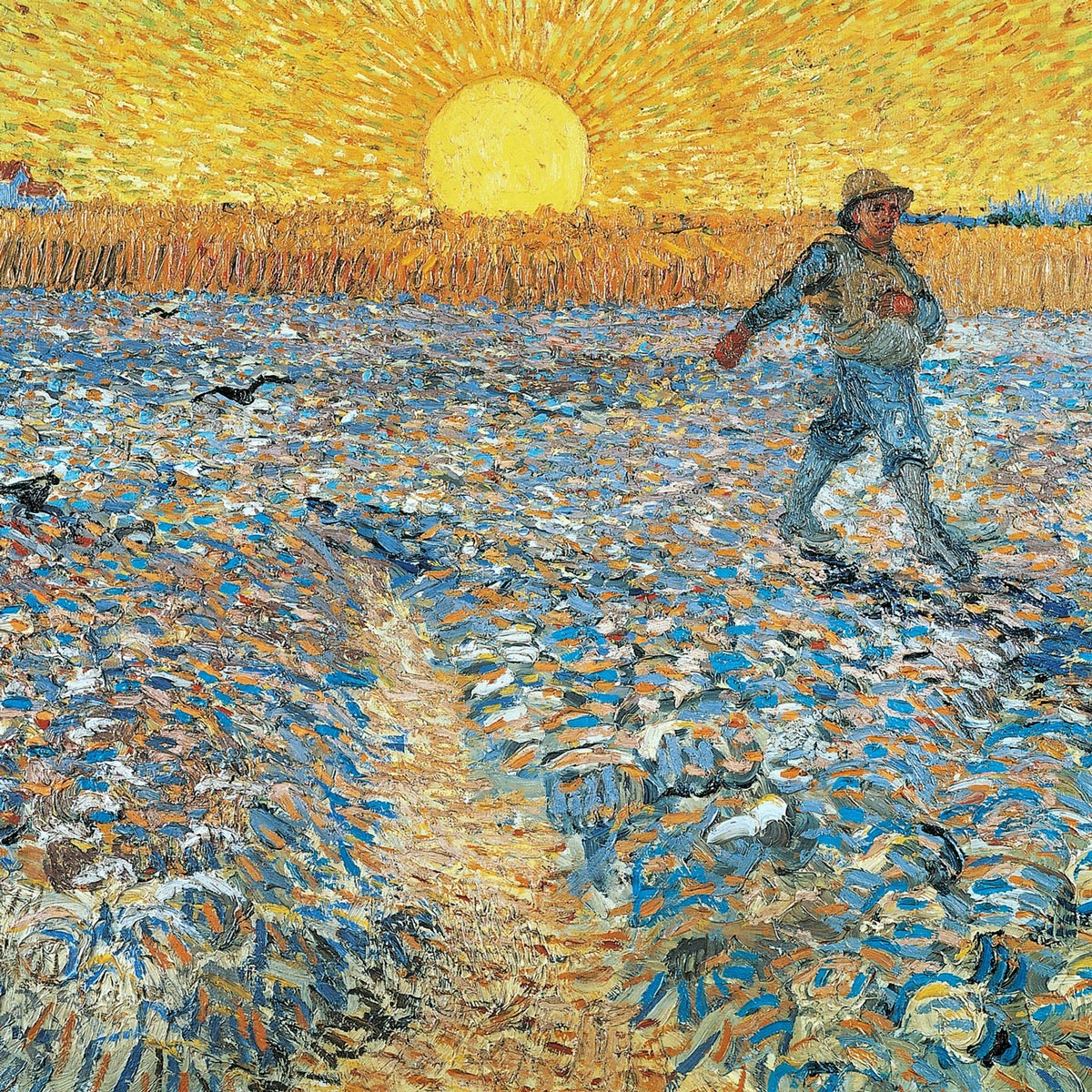
November 27, 2023
A Theological Resource for Giving Tuesday
After the frantic for-profit deals of Black Friday and Cyber Monday comes the flurry of non-profit appeals on Giving Tuesday. Henri Nouwen offers reflective questions about the relationship between money and power, our feelings about giving, and connecting to why we give charitably.
Ryan McAnnally-Linz

June 26, 2023
Love in a World of Enormous Difference
What if home is supposed to be more than something we simply define? Could we be called to become a home for each other? Natalia Marandiuc joined Evan Rosa on For the Life of the World to discuss the meaning of home, the self, and our agency to create.
Natalia Marandiuc
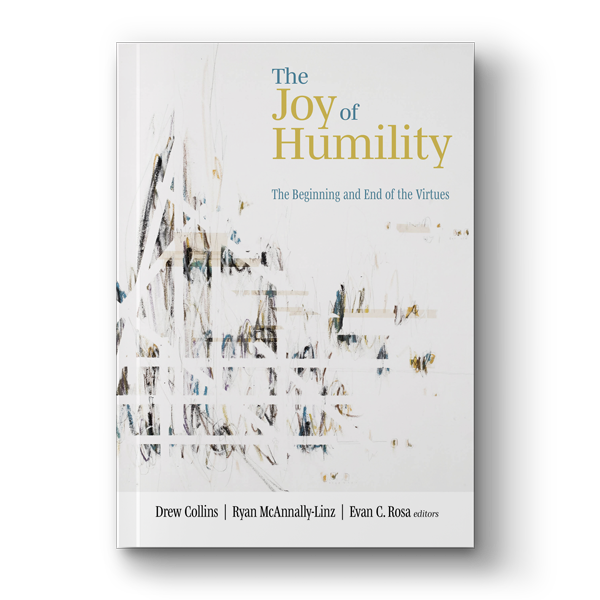
September 1, 2020
The Joy of Humility
The true meaning of humility persistently drives debate, largely because we cannot agree on the word’s definition. The "correctness" of normative terms matters, and humility carries a distinctive normative weight. How we understand humility is not a matter of mere semantics. It is a pursuit of inquiry with the potential to inform—perhaps even to transform—our lives. The Joy of Humility takes up this task with a view toward the perennial question of what entails a truly flourishing life. Here, philosophers, theologians, ethicists, and psychologists work to frame the debate in such a way that the conversation can move forward.
Drew Collins
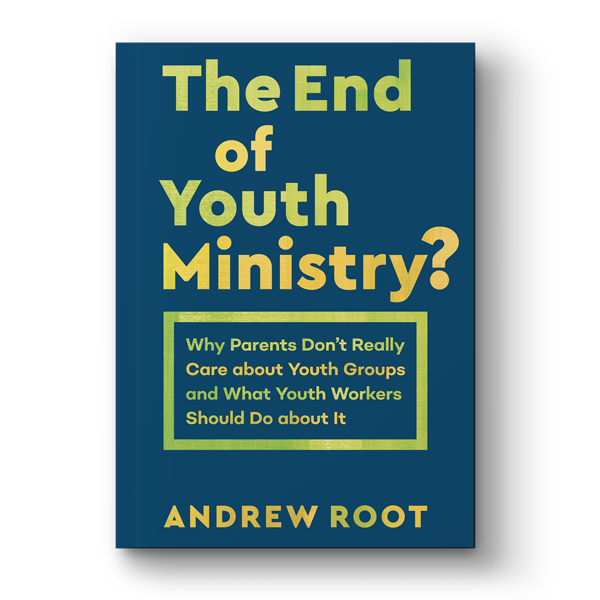
March 17, 2020
The End of Youth Ministry?
What is youth ministry actually for? And does it have a future? Andrew Root weaves together an innovative first-person fictional narrative to diagnose the challenges facing the church today and to offer a new vision for youth ministry in the 21st century.
Andrew Root
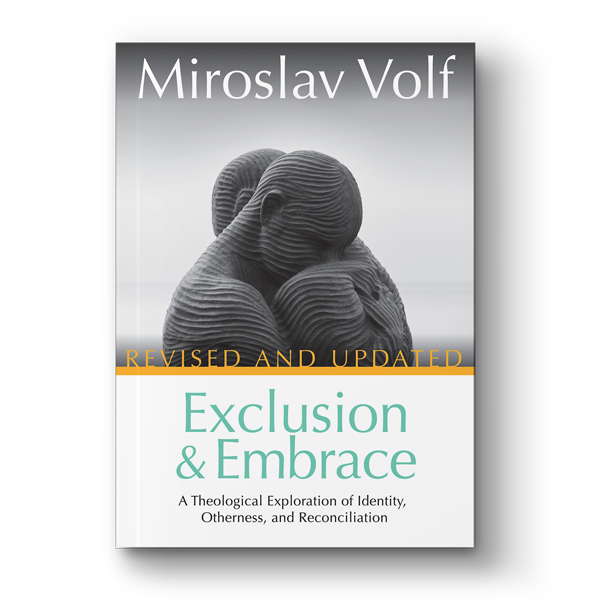
August 20, 2019
Exclusion and Embrace
If the healing word of the Gospel is to be heard today, Christian theology must find ways of speaking that address the hatred of the other. Is there any hope of embracing our enemies? Of opening the door to reconciliation?
Miroslav Volf
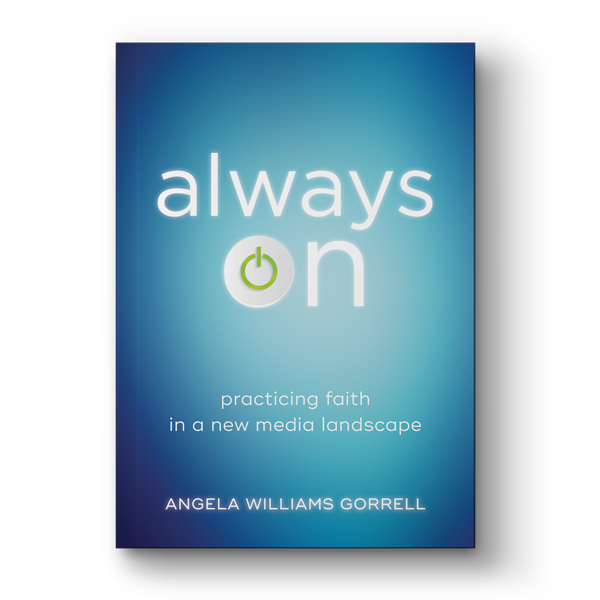
May 21, 2019
Angela Gorrell

April 4, 2024
A World Out of Joint
What are the possibilities of homemaking in a world out of joint? What does it mean for Christians to be on a pilgrimage? To be sojourners in the world? Ryan McAnnally-Linz joins Evan Rosa to discuss what it means for Christian life to be a journey not from here to there, but from here to … here.
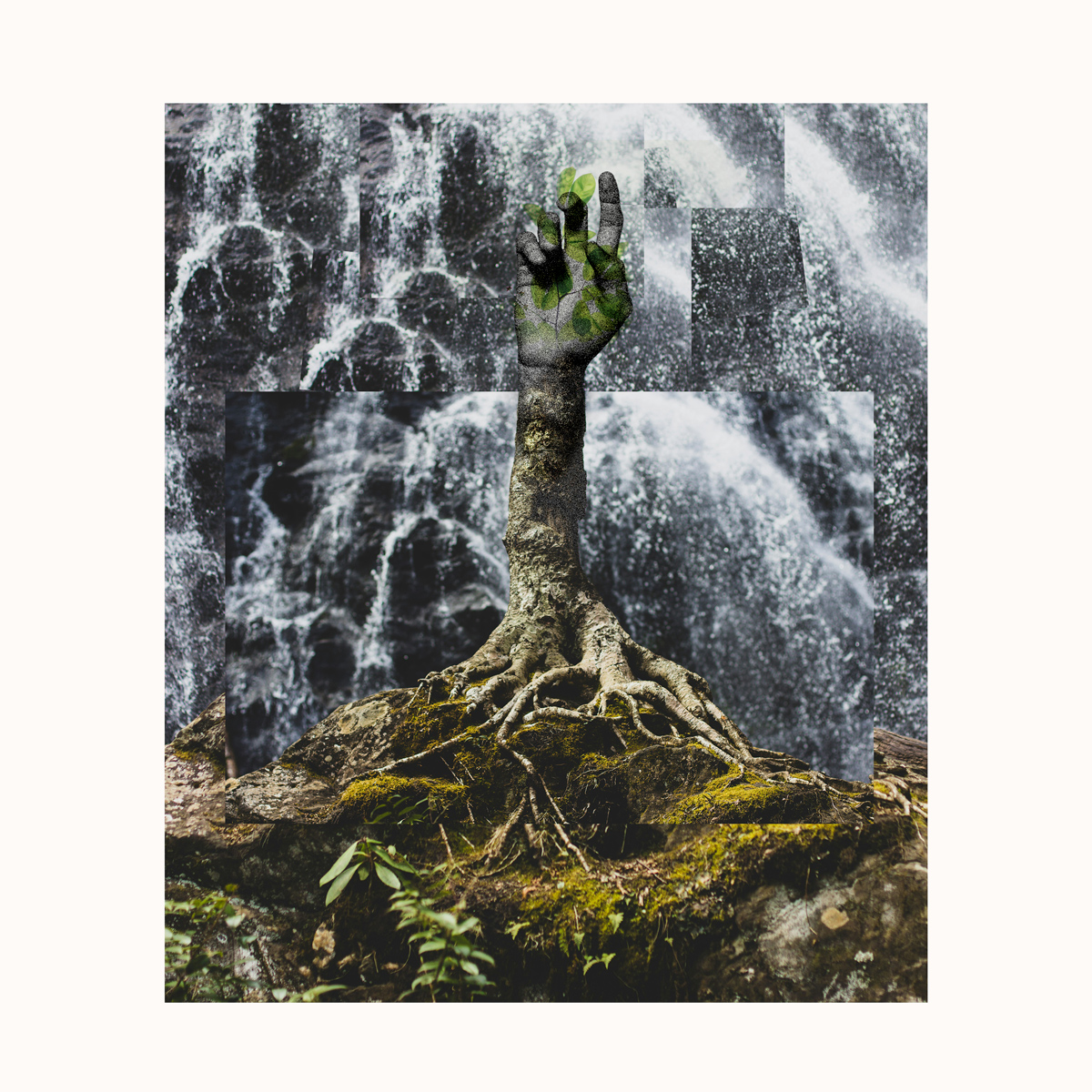
March 27, 2024
You Are A Tree
Theologian Joy Marie Clarkson (King's College London) discusses her most recent book, You Are a Tree: And Other Metaphors to Nourish Life, Thought, and Prayer.
Joy Marie Clarkson
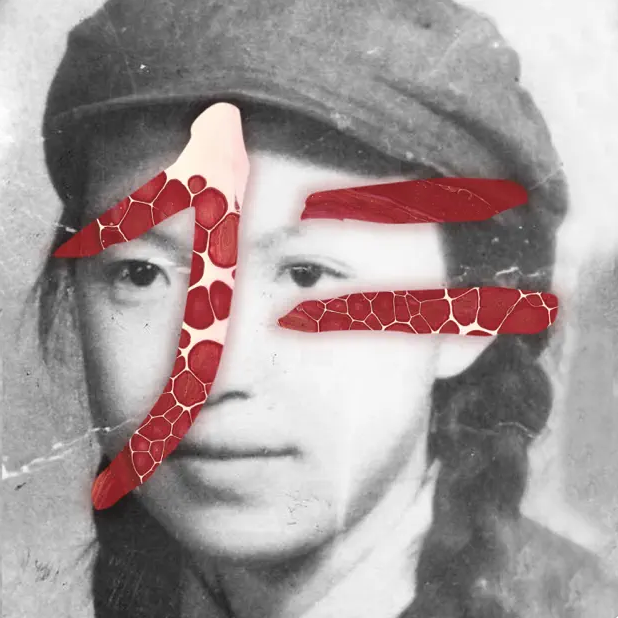
March 20, 2024
Chinese Political Theology
Theologian Peng Yin (Boston University School of Theology) joins Ryan McAnnally-Linz to discuss the role of theology and religion in Chinese public life—looking at contemporary foreign policy pitting Atheistic Communist China against Democratic Christian America; the moving story of Christian communist political dissident Lin Zhao; and the broader religious, philosophical, and theological influences on Chinese politics.

March 14, 2024
The Transforming Fire of Theological Education
What are the goals of education? Are we shaping young minds or corrupting the youth? Theologian Mark Jordan joins Matt Croasmun for a conversation about the meaning of theological education today.

May 1, 2021
Pursuit of a Life Worth Living
“What we’re trying to do is offer students an opportunity to think critically about the most important question of their lives across important and enduring lines of difference. That can only be good for them as individuals and as global citizens.”
Matthew Croasmun
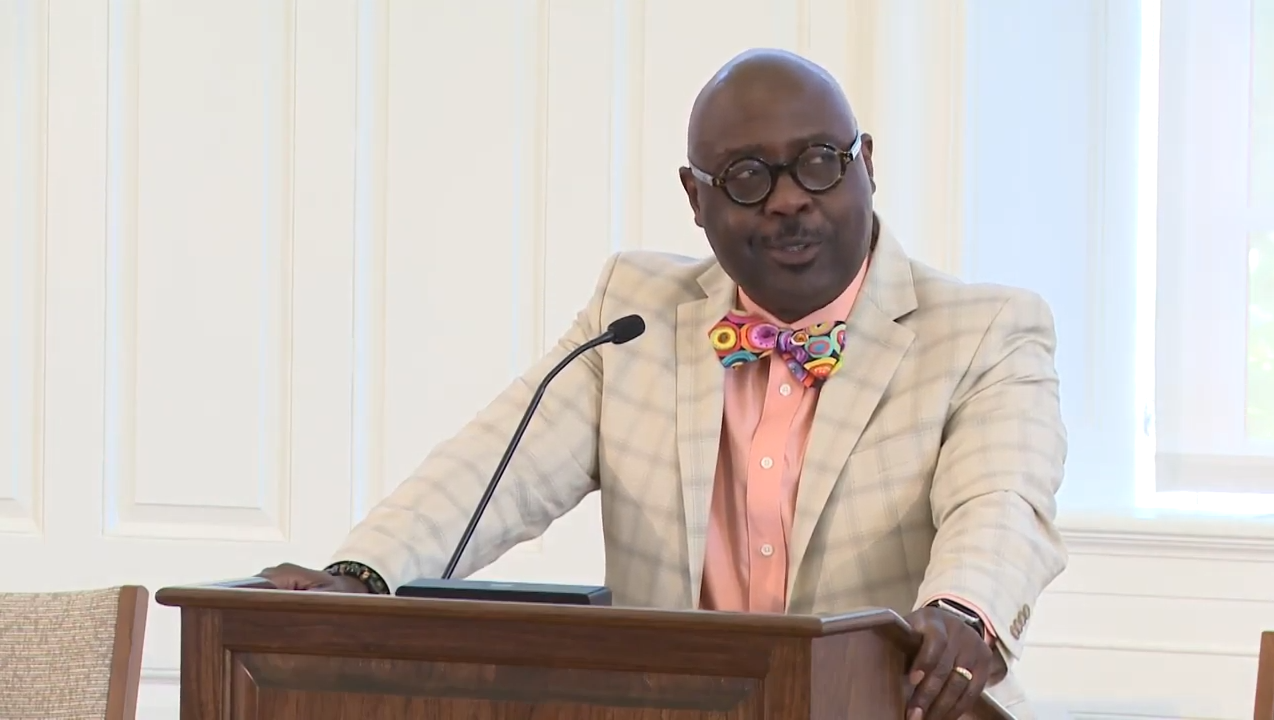
July 31, 2018
Gathering Joy
Willie Jennings
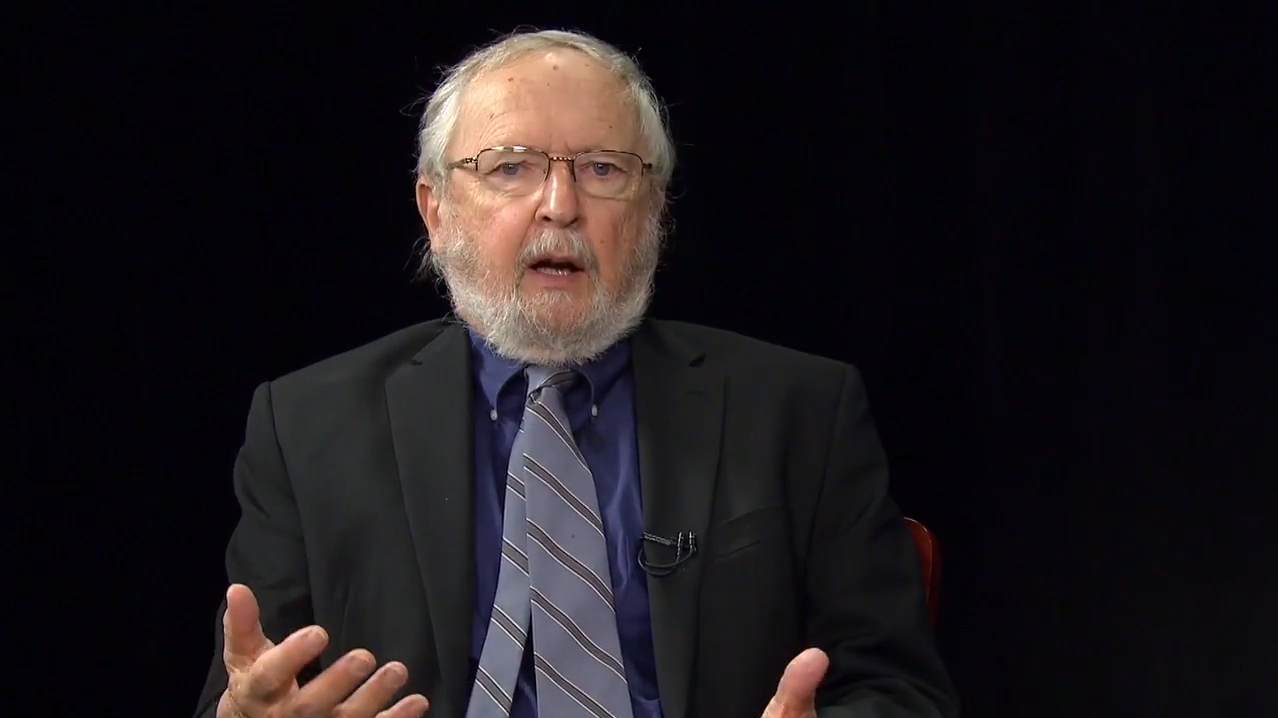
April 18, 2017
The Future of Theology
George Marsden
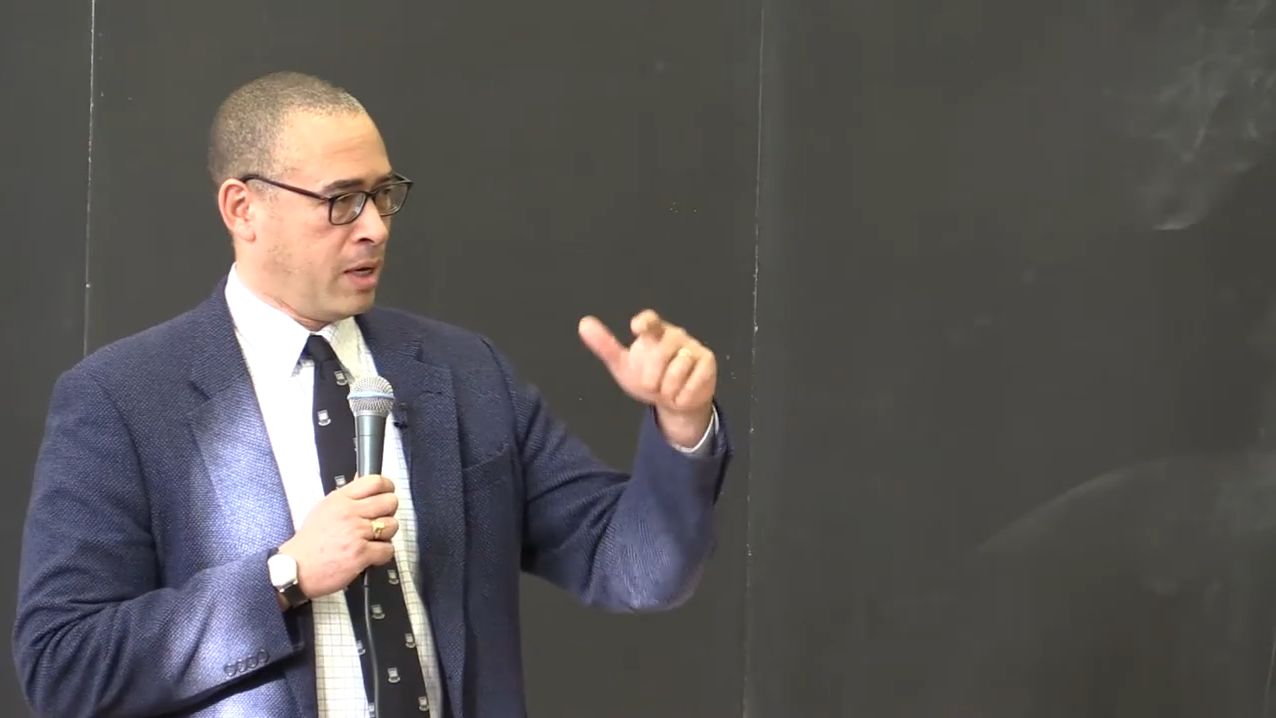
April 1, 2017
Life Worth Living and the University
Jonathan Holloway

IMAGES
VIDEO
COMMENTS
2)Consider Publications. Now that you have ideas, it's time to consider where you might get published. Before drafting, it can be helpful to do a deep dive into the tone of the publication you'll be pitching your piece to. When thinking about where to get published, consider where you go for blogs and articles about teaching.
4. Consider an apprenticeship. Another method to receive constructive feedback on your writing for improvement is by engaging in an apprenticeship. This opportunity enables you to acquire both technical and interpersonal skills essential for a writing career under the guidance of an experienced writer.
If we had to boil a writer down to three requirements, it wouldn't involve age or degree. The 3 traits for becoming a writer are: Passion for the written word, Desire to expand the boundaries and possibilities of language, and. Willingness to grow and learn continuously. Many writers who have these traits stop themselves from writing, because ...
Become a regular reader. You've probably been told that if you want to be a writer, you need to be a reader. And it's true—just like listening to a variety of music is key to being a skilled musician, reading lots of different kinds of writing will help you become a stronger writer. Don't just read the kind of writing you want to do ...
6. Keep learning. Be the first to add your personal experience. 7. Here's what else to consider. Be the first to add your personal experience. If you are an educator who enjoys writing and ...
Here are 7 steps to help you become a writer: Learn how to become a writer in 7 practical steps! Click to tweet! 1. Create a solid writing routine. Finding the time to write in a jam-packed schedule is the first hurdle for almost every aspiring author. Countless talented writers never make it past this obstacle, but those who do are already ...
The following are 17 common education writer responsibilities: 1. Writing to a brief. A key skill for an education writer is being able to write to a brief. A brief is a set of requirements to which the client or editor wants the writer to adhere. The extent of detail in a brief can vary but most outline the content and the word count.
Take the free CareerExplorer career test to find out if this career is right for you. Perhaps you are well-suited to become a writer or another similar career! Described by our users as being "shockingly accurate", you might discover careers you haven't thought of before. Step 2.
Start a (micro)blog. If you want to specialize in online writing, which is most writing these days, start your blog. You can publish short posts on LinkedIn , Medium, or Typeshare. That's an easy way to create several writing samples and start building a personal brand as a writer. 3.
A high school degree or equivalent is the minimum educational requirement to qualify for a majority of writing jobs. Coursework in English, reading and writing are important. Future writers can also write for their yearbook or school paper to develop skills. Step 2.
A textbook writer develops textbooks to educate students according to the specifications of their publisher. As a textbook writer, your typical duties are to write a book outline to gain approval from the publisher, develop the content for the book, and add a lesson or review questions at the end of the chapters, depending on the subject and ...
According to the Department of Labor's Bureau of Labor Statistics, $62,270 is the median salary for curriculum writers. Elementary and secondary schools typically pay higher salaries than colleges, professional schools, or governments. Employment for curriculum writers is expected to grow by 7 percent between now and 2024.
What do you do if you want to become a sought-after freelance educational content writer? Powered by AI and the LinkedIn community. 1. Hone Your Skills. 2. Know Your Audience. 3. Build a Portfolio ...
1. Do Your Research. Before stepping into a freelance education writing career, you need these preparations: Do your research to find out which type of educational writing services you can provide. Know about the different educational content available online and decide which type you can write well.
Related: How To Become a Better Writer: 11 Steps for Success 4. Seek higher education Depending on the writing position you're targeting, you might consider pursuing a college degree. Many writers have bachelor's degrees in English, creative writing or journalism. A Bachelor of Fine Arts (BFA) and Master of Fine Arts (MFA) are also viable.
Bachelor's Degree (4 years): A bachelor's degree in writing usually takes four years of full-time study. The cost can range from $10,000 to $32,000 depending if you're an in-state or out-of-state student. Master's Degree (1-2 years): A master's degree in writing typically takes 1 to 2 years to complete.
What level of education do writers have? Writers often have similar levels of education. 72% of writers have a bachelor's degree, with the second most common being a certificate or associate degree at 26%.
While a degree in English, journalism, or creative writing can provide a solid foundation in literary techniques and theory, it is not a strict prerequisite for a successful writing career. The field of writing is unique in its accessibility; talent, creativity, and a strong portfolio can often speak louder than formal education credentials.
5. Read More. Being a good reader is essential to being a good writer. And what you choose to read will often influence the way you write. With that in mind, we'd like to recommend a few good books on writing:. On Writing Well: The Classic Guide to Writing Nonfiction by William Zinsser (best book on the mechanics of the language); Save the Cat by Blake Snyder (best book on story structure)
The trick is to become a successful writer is to treat it like a business. Work on your craft and improve your writing skills every day by taking online courses for writers, reading the best writing books and more. Also, work on your business every day by building your brand and pitching for new writing jobs. 7.
The first step to becoming a pulmonologist is earning a bachelor's degree, typically in biology, pre-med or closely related fields. These programs prepare students for medical school and ...
Here is a list of writing professions you may be eligible for after graduating with a bachelor's degree in communications, journalism or English: Novelist: A novelist is an author of books with fictional storylines. Novelists create the characters, conflicts and dialogue, and they may create book series to continue a storyline and entice ...
Here are some steps you can take to become a fiction writer: Read extensively: Reading is essential for writers because it exposes you to different styles, techniques, and voices. Reading also helps you understand the elements of storytelling and how they work together to create a great story. Make a habit of reading every day, and try to read ...
Most item writers do the bulk of their work alone. They connect with SMEs or course designers, but ultimately, the work happens between them and their computer. Remote work arrangements are common and some writers are hired on a contract basis. You may need to learn proprietary software or be familiar with common content and learning management ...
Earn a Bachelor's Degree. One of the most important steps toward becoming a writer is the combination of reading and writing. Earning a bachelor's degree in English from an accredited university, such as Maryville University's online Bachelor of Arts in English, offers an excellent opportunity to engage in reading, writing, and the ...
4. Start looking for work. 5. Request good reviews. freelance writing career. Related: The 9 Skills it Takes to Succeed as a Freelance Writer. 6. Market your writing aggressively. You can create a ...
9. Getting Feedback. Ask AI to tear your writing apart to be sure there's nothing you've overlooked. You can ask it to be a harsh critic. "You're a university professor in literature specializing ...
Meanwhile, while fewer faculty members used AI, the percentage grew to 22% of faculty members in the fall of 2023, up from 9% in spring 2023. Teachers are turning to AI tools and platforms ...
Education Requirements. Healthcare attorneys need to have a bachelor's degree before pursuing a career in health law. The exact entry requirements of law schools vary, but most require applicants to complete the Law School Admission Test (LSAT). Other schools allow applicants to take the GRE instead of, or in addition to, the LSAT.
The Violent Bear It Away as a hymn to the eucharist. O'Connor requires spiritual reading. A summary of "Greenleaf". Pierced by the bull, a violent union of Savior and sinner. O'Connor's Christian characters; "A Good Man is Hard to Find". Characters changing and choosing faith before death. The final paragraph of "Greenleaf".